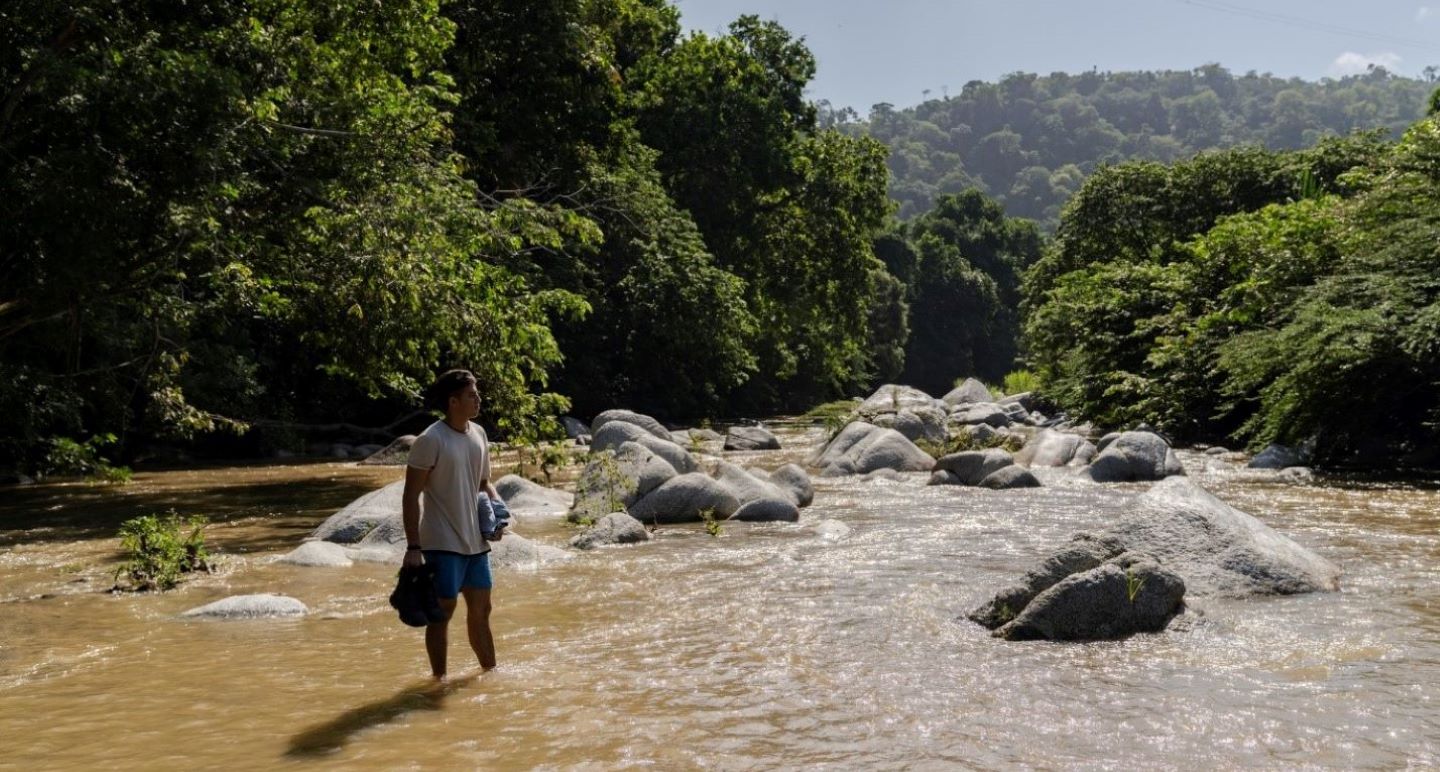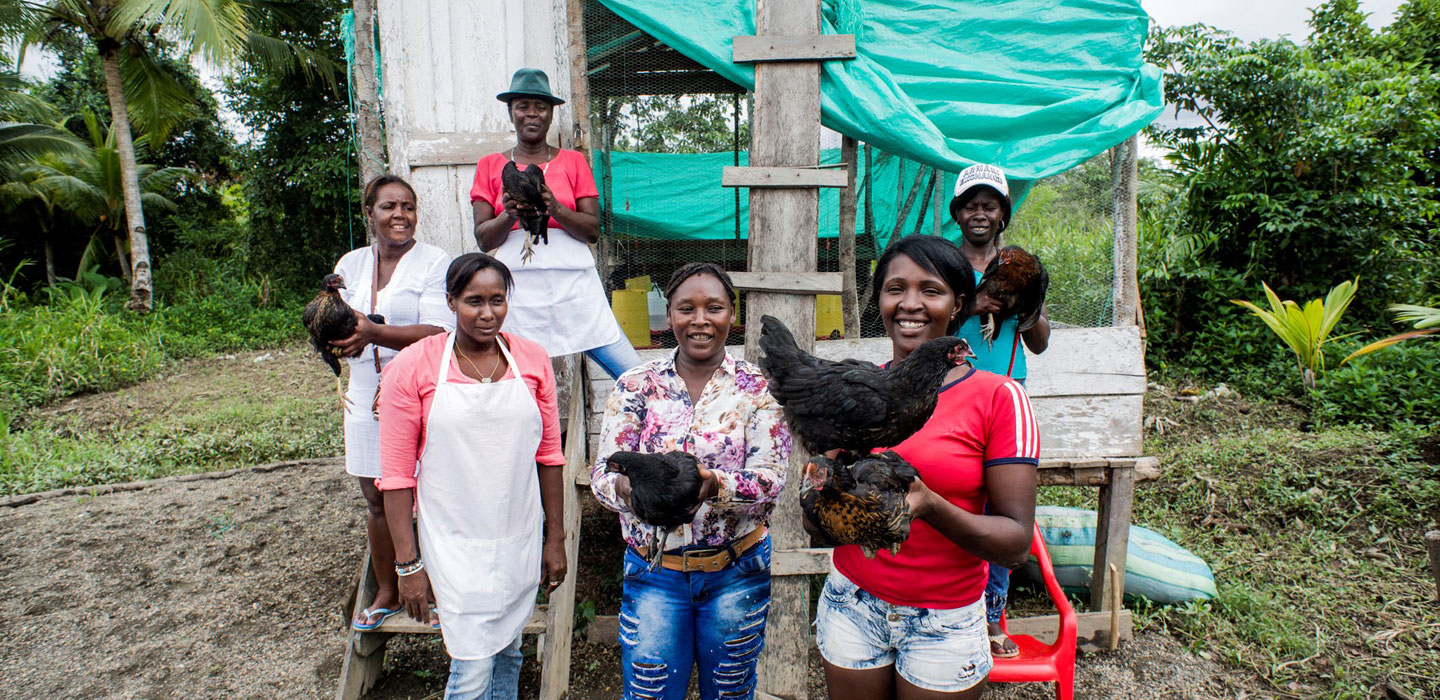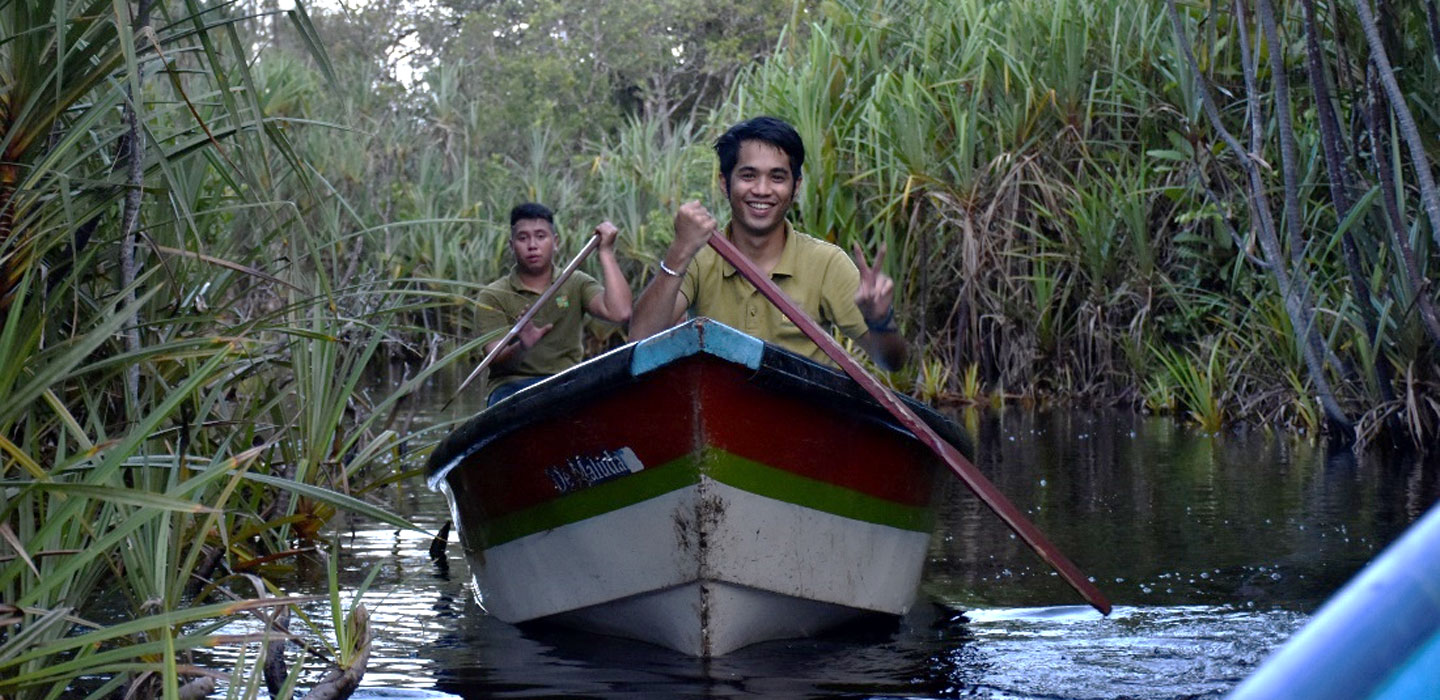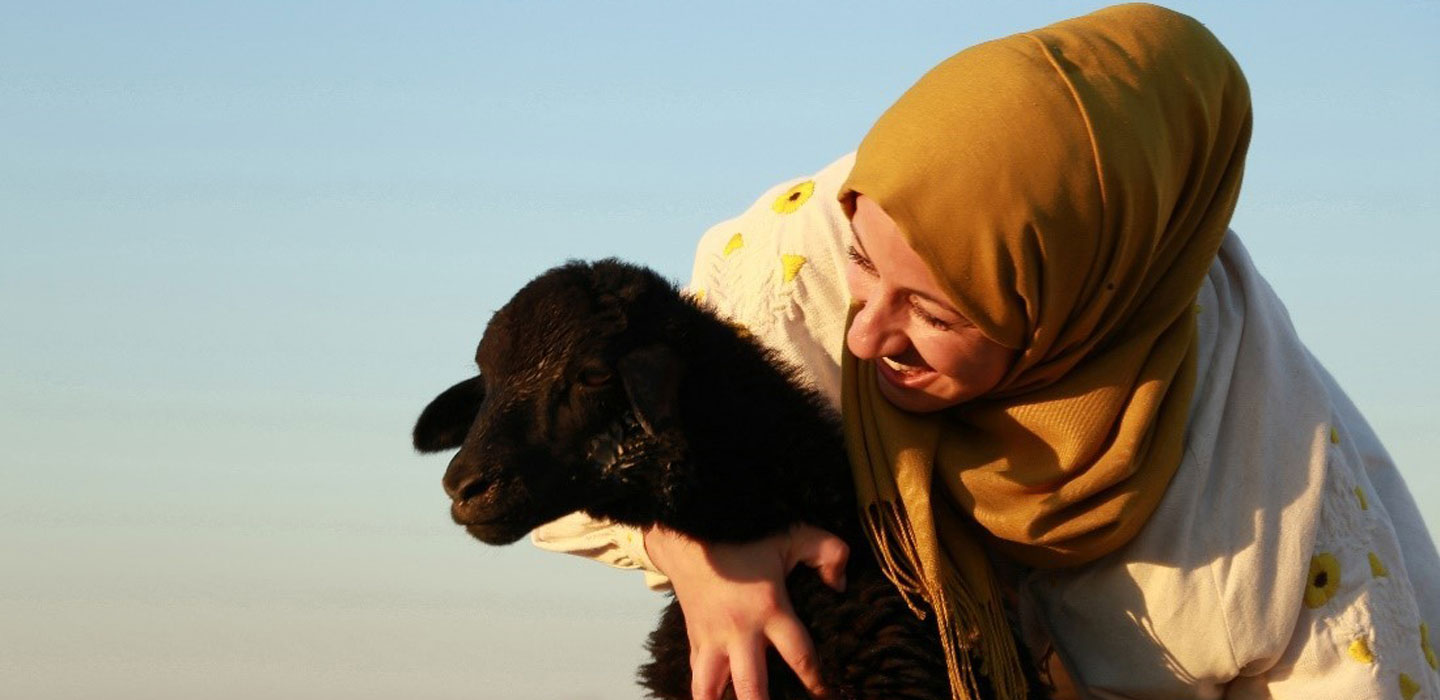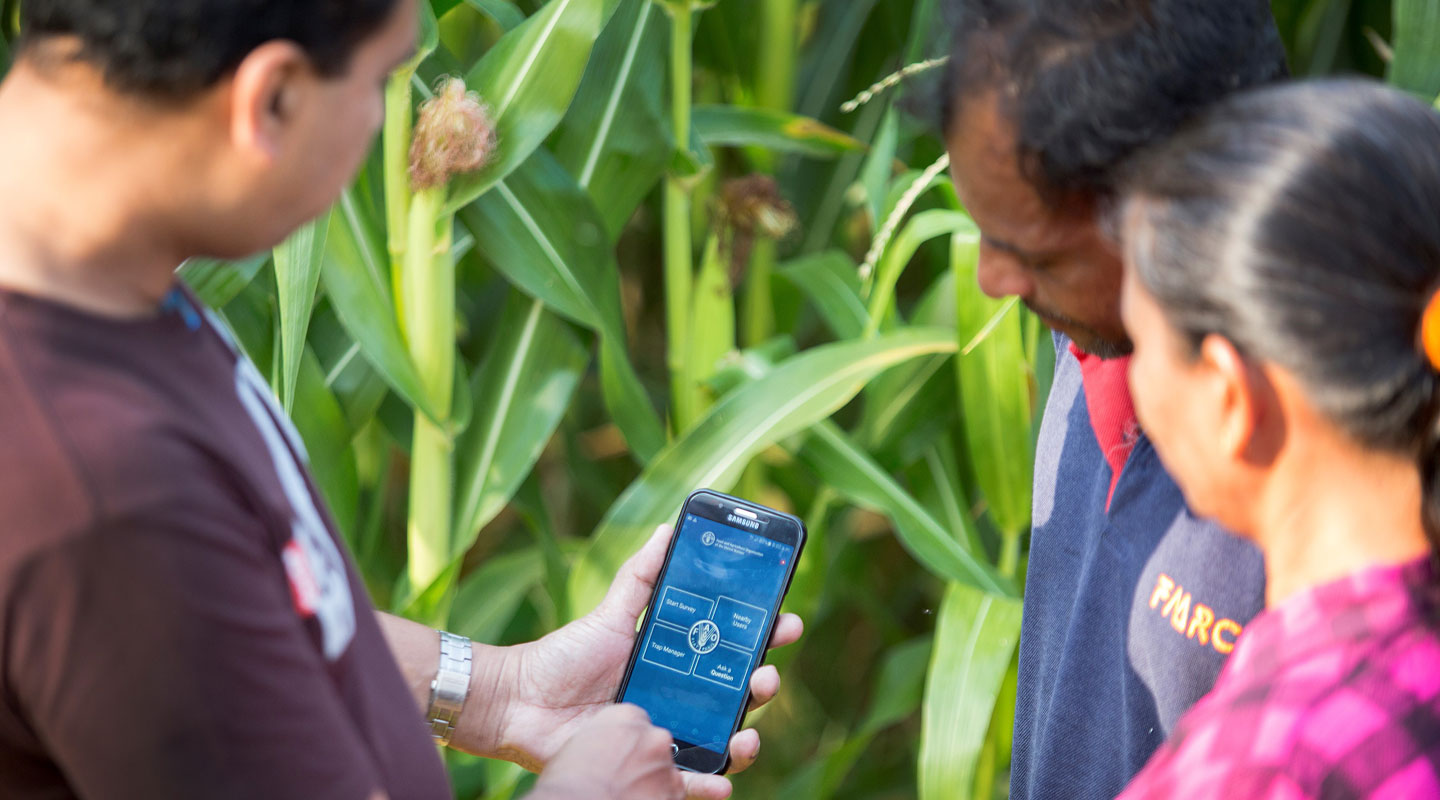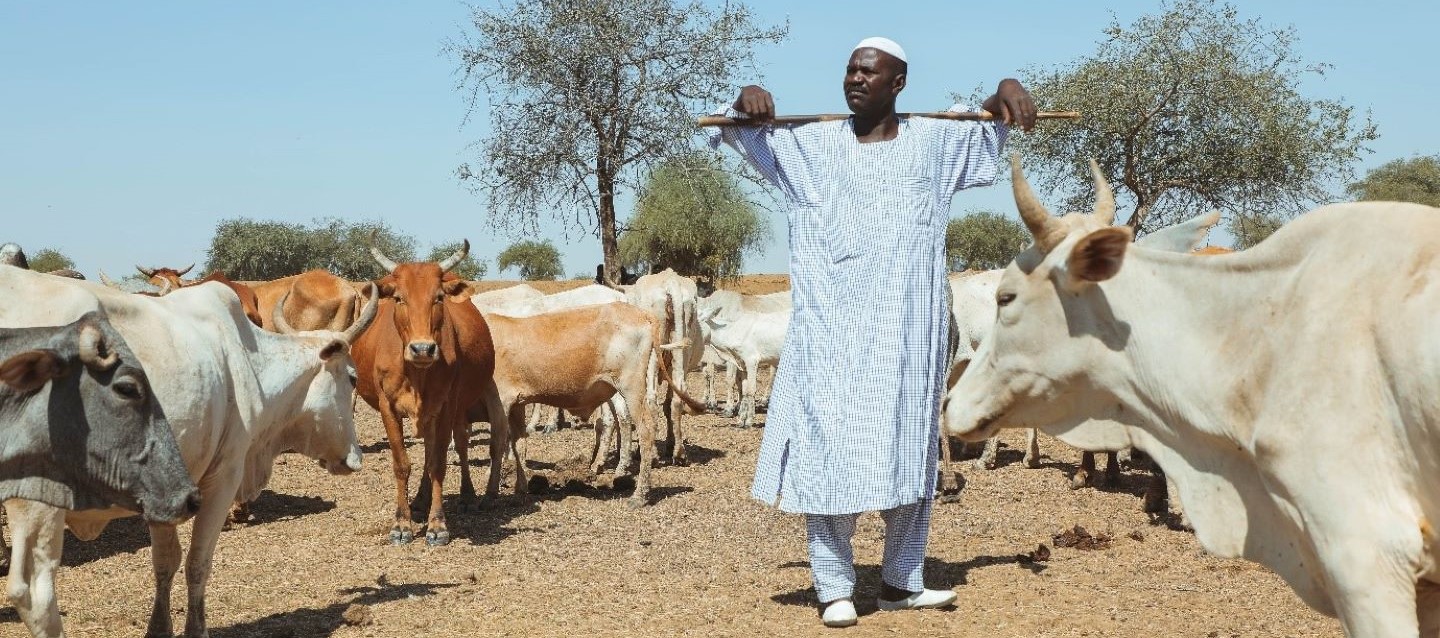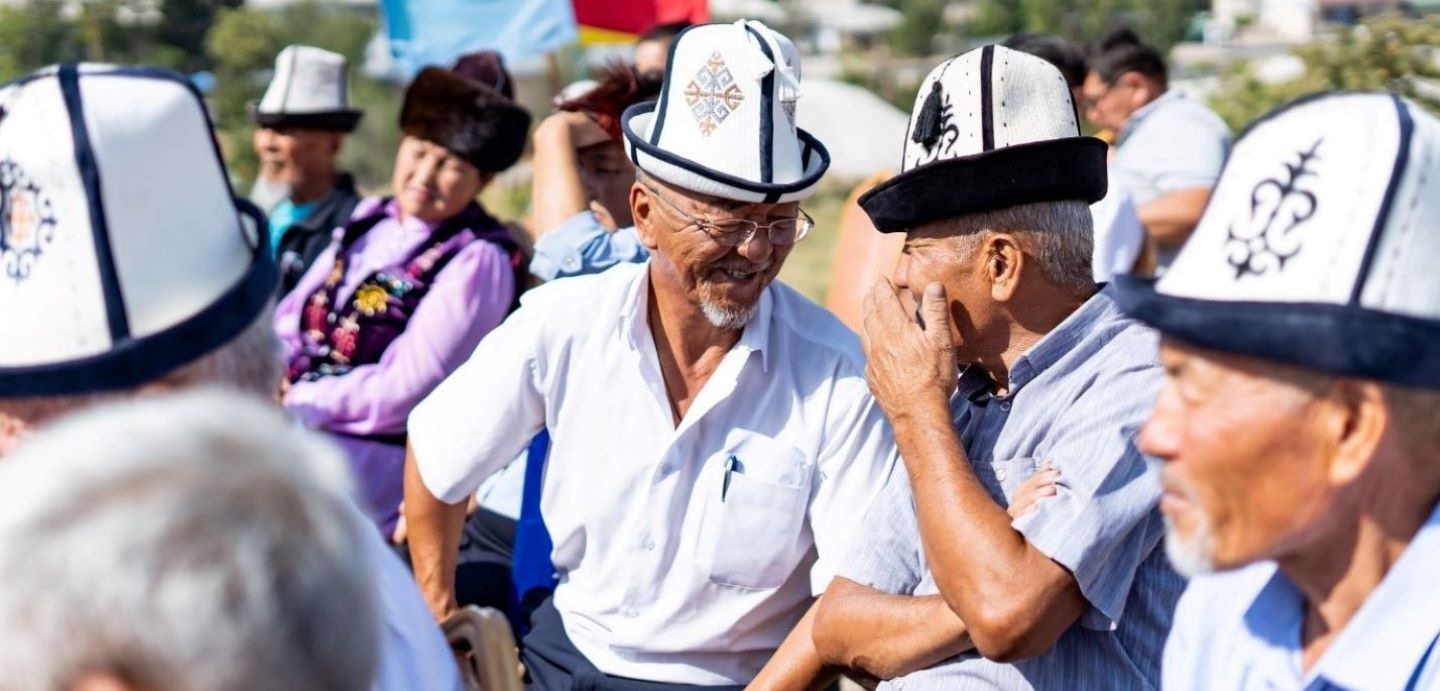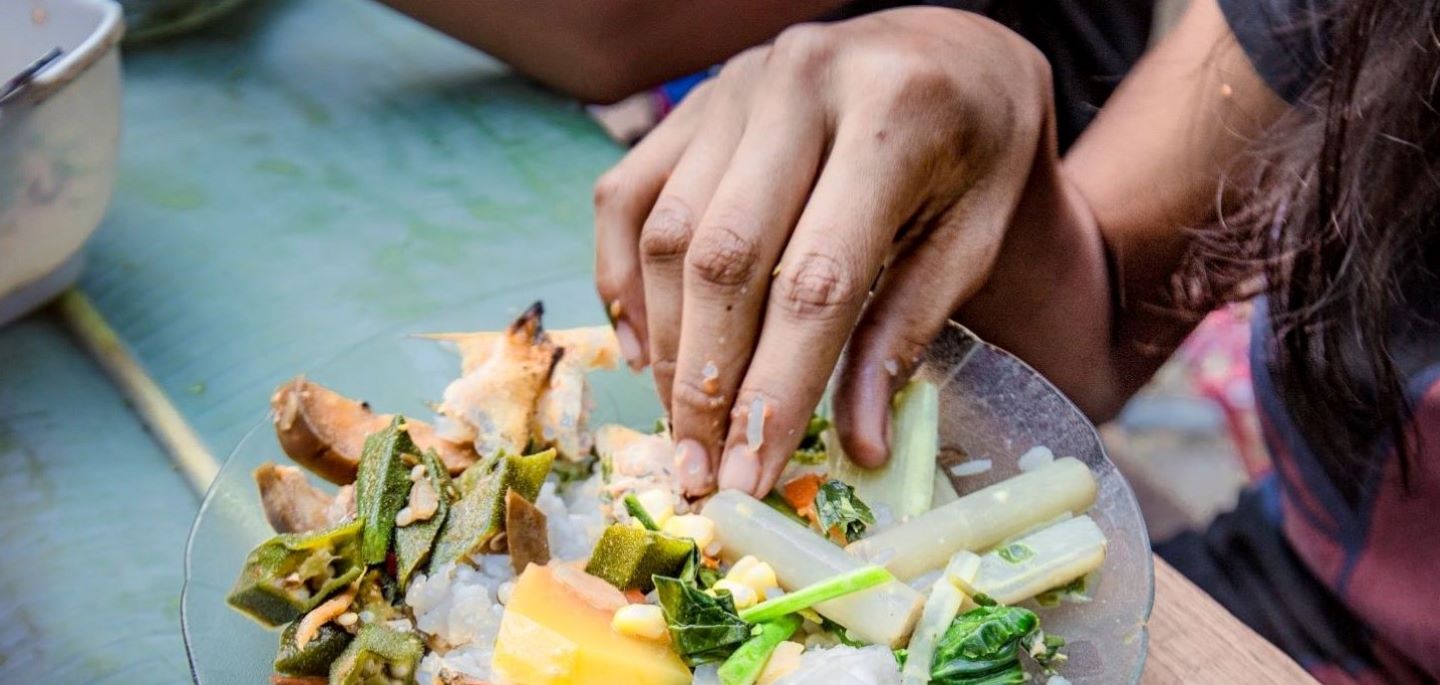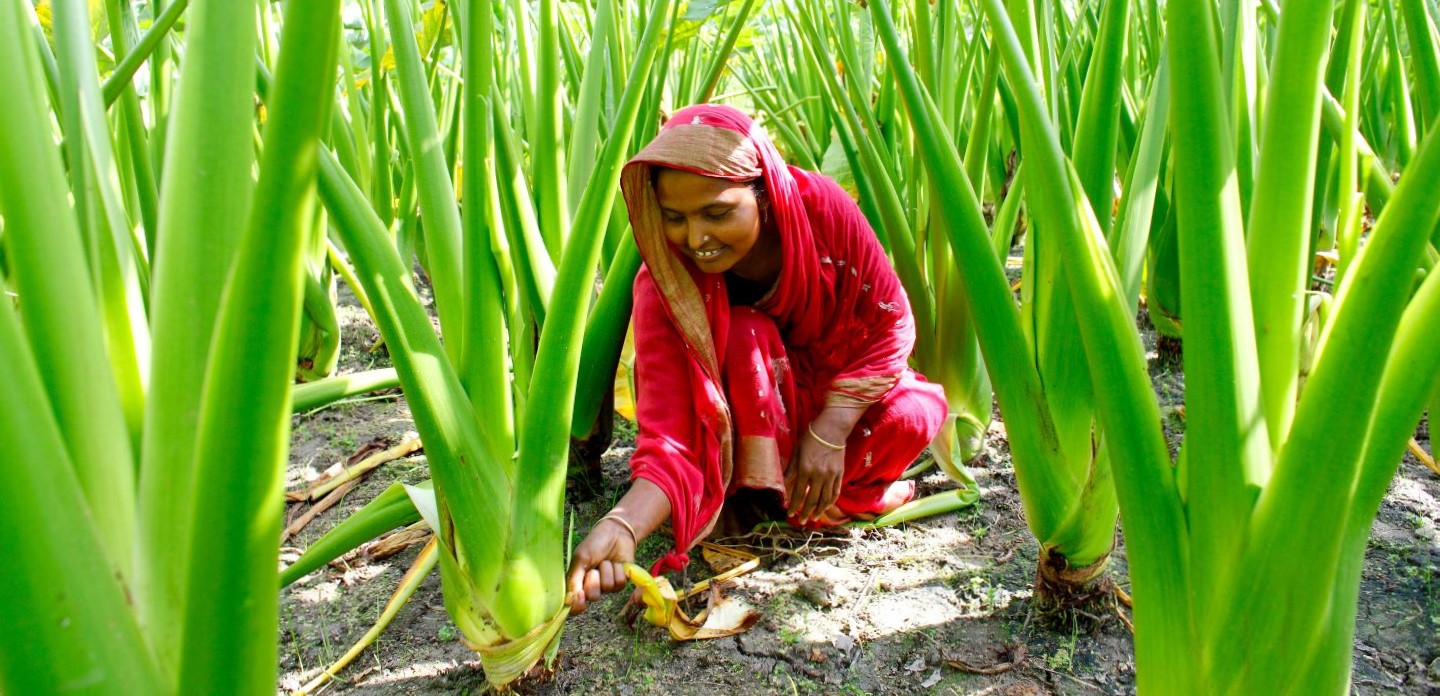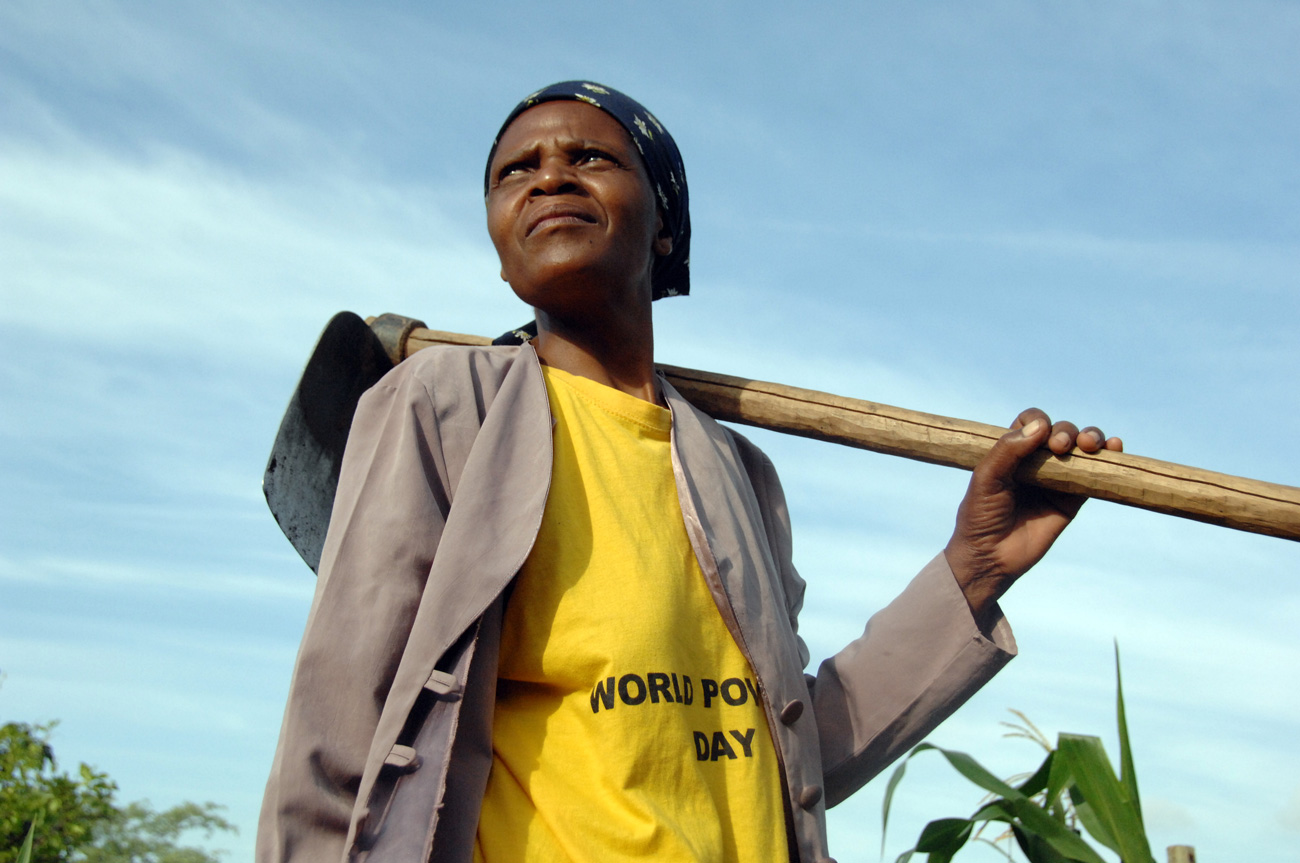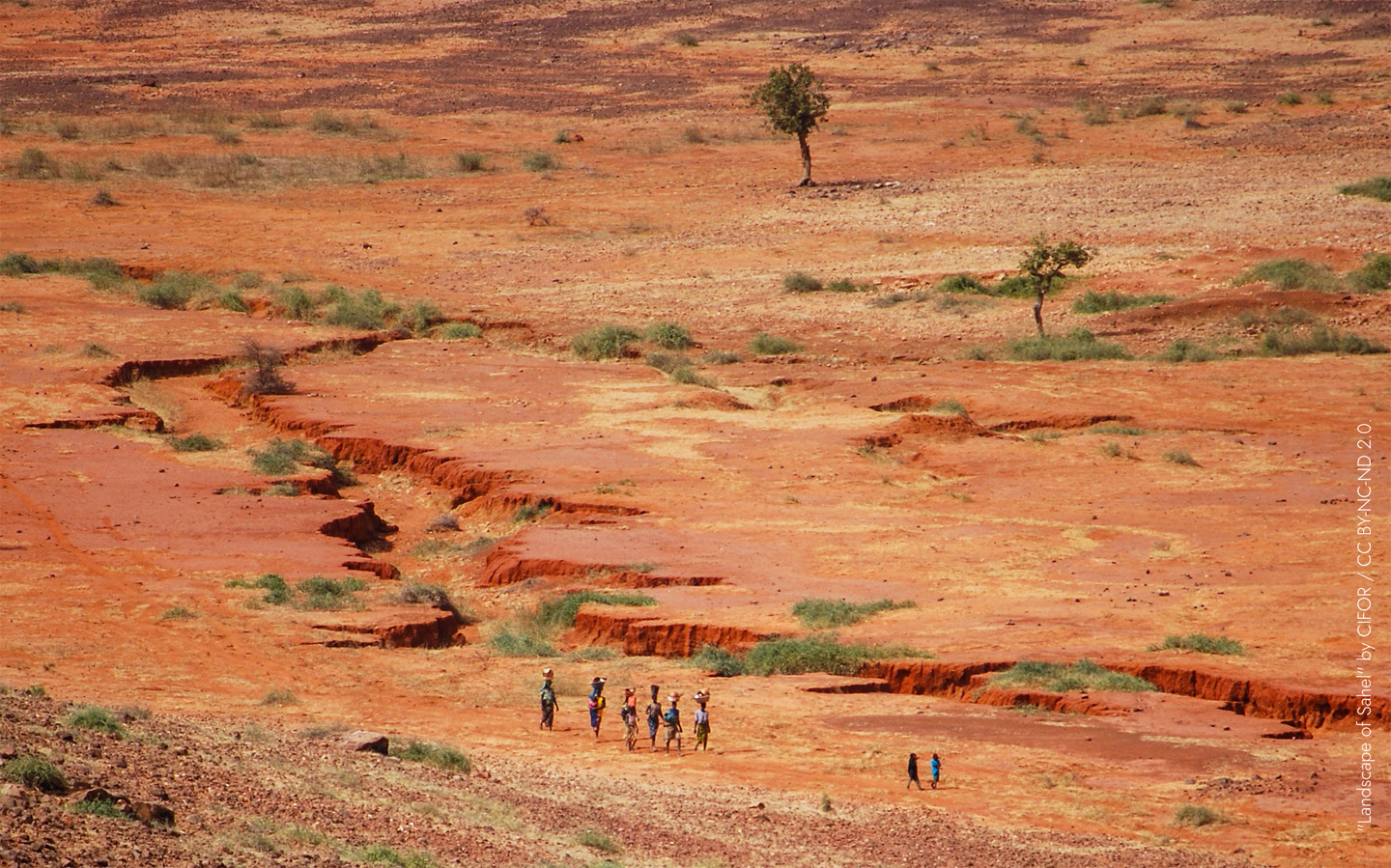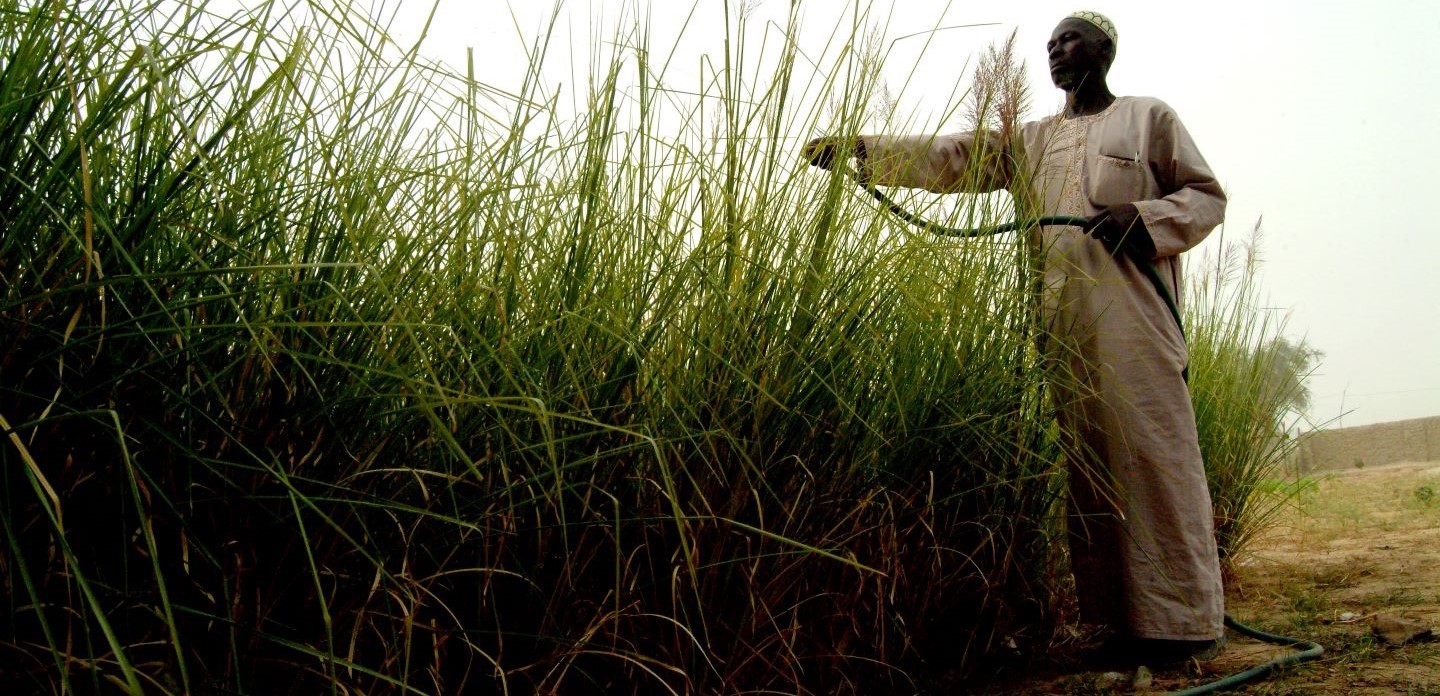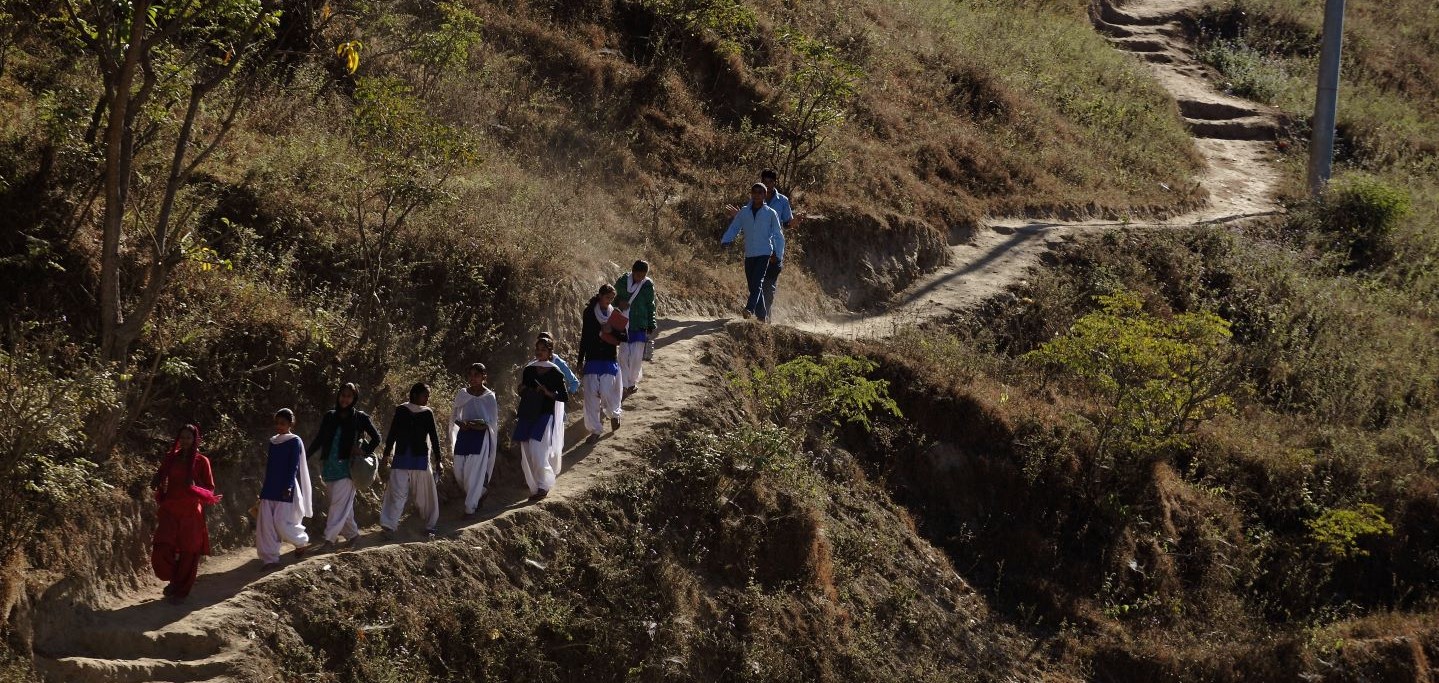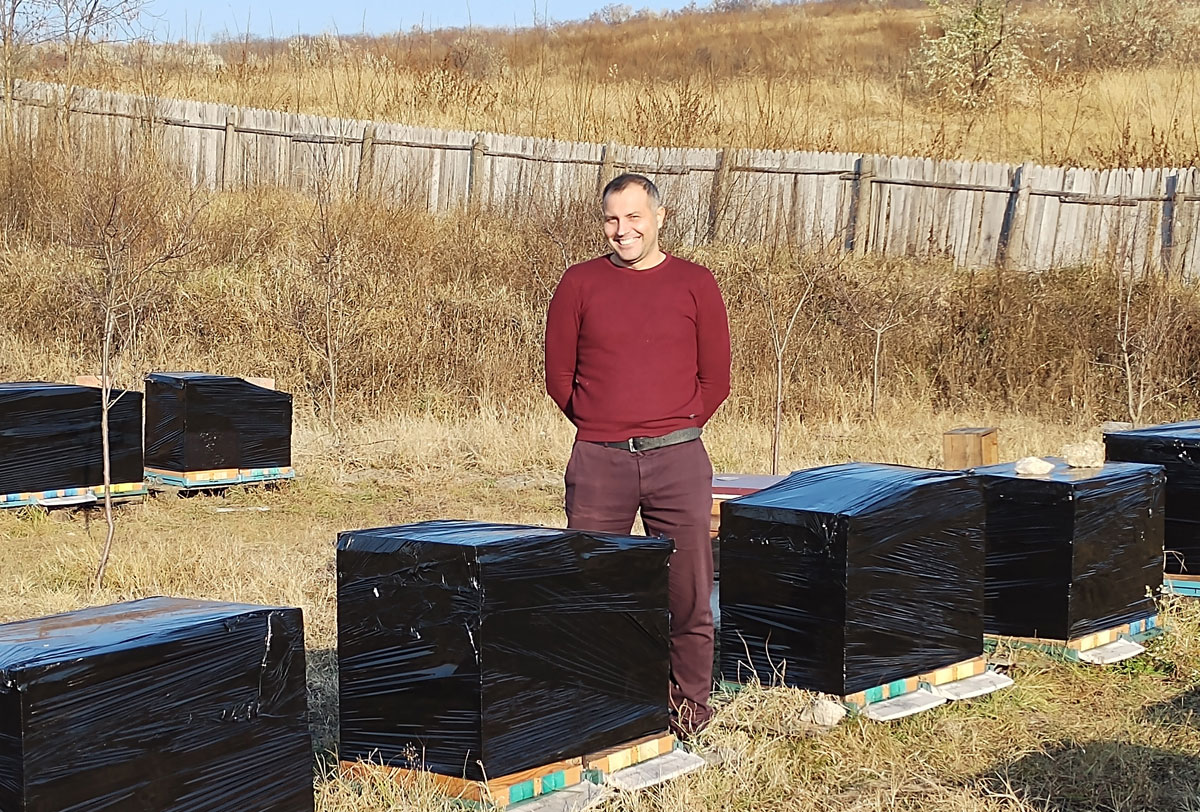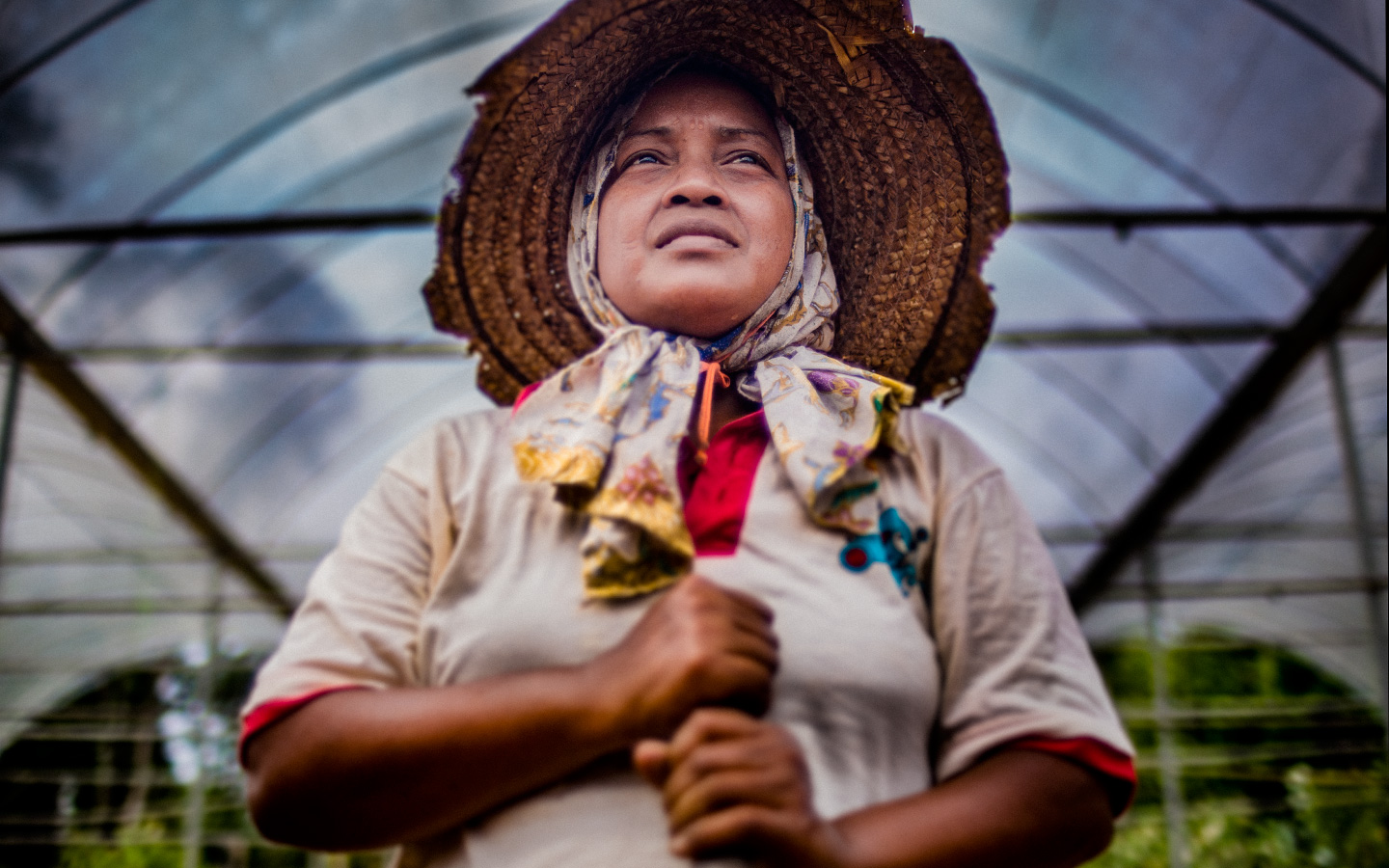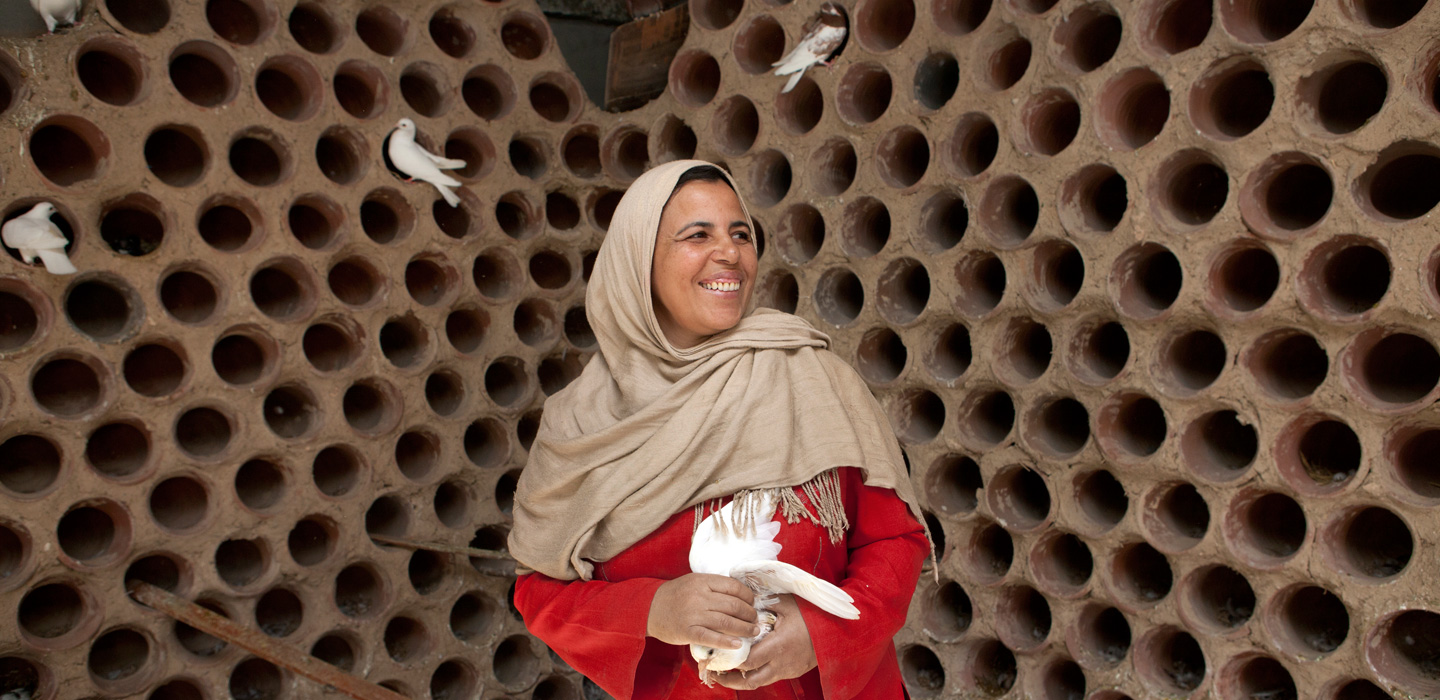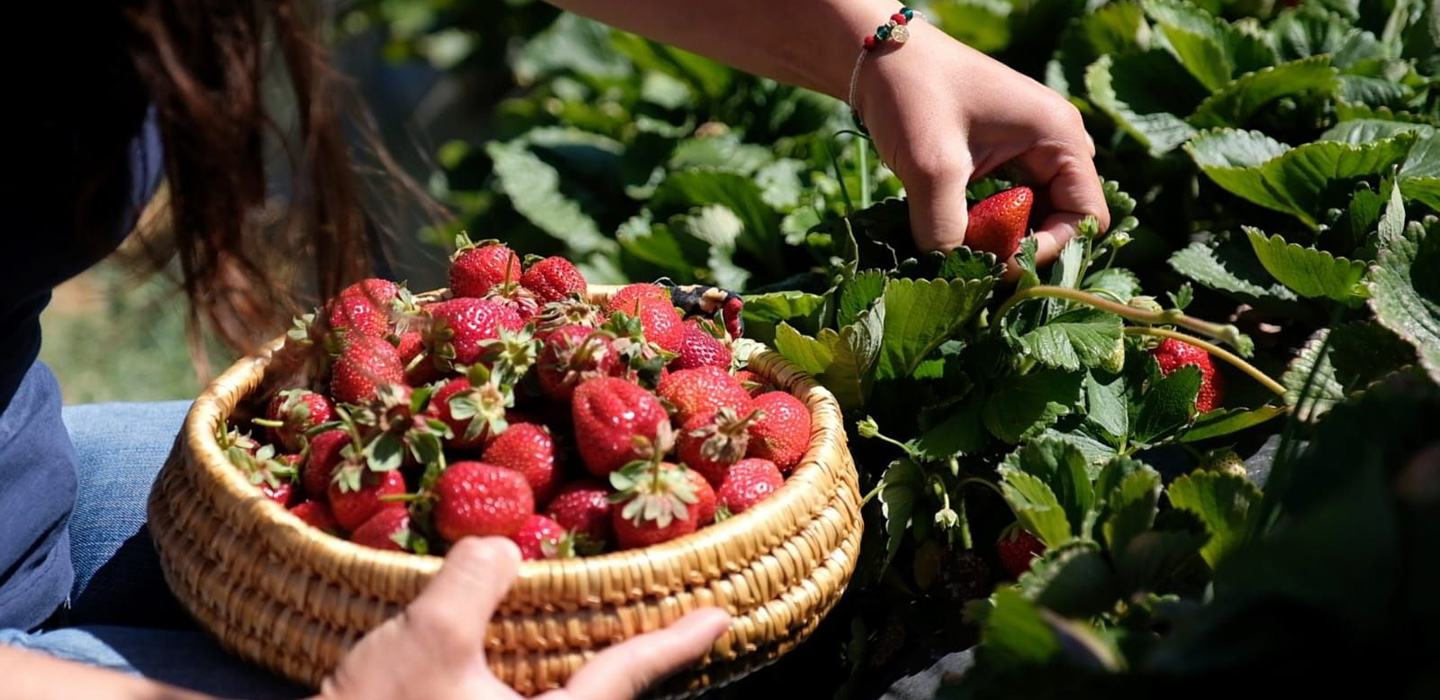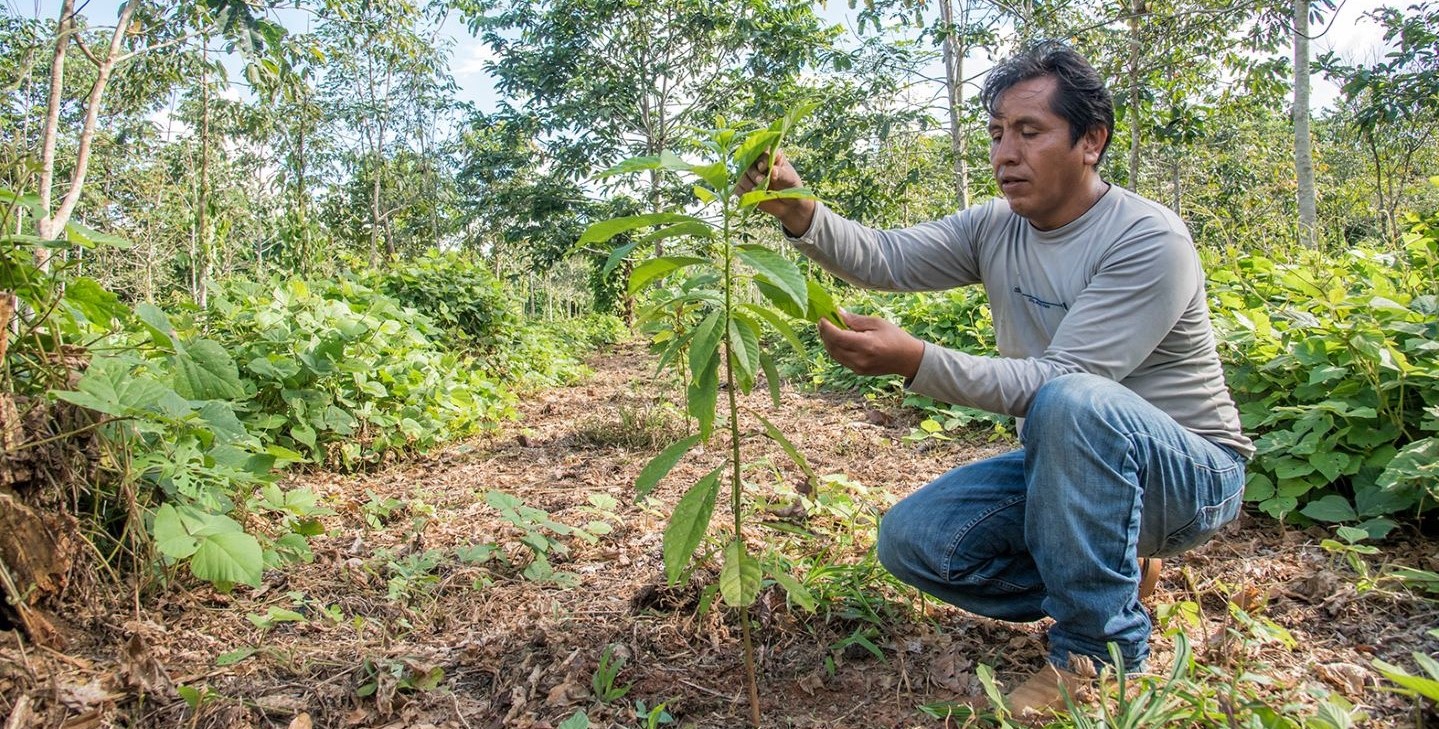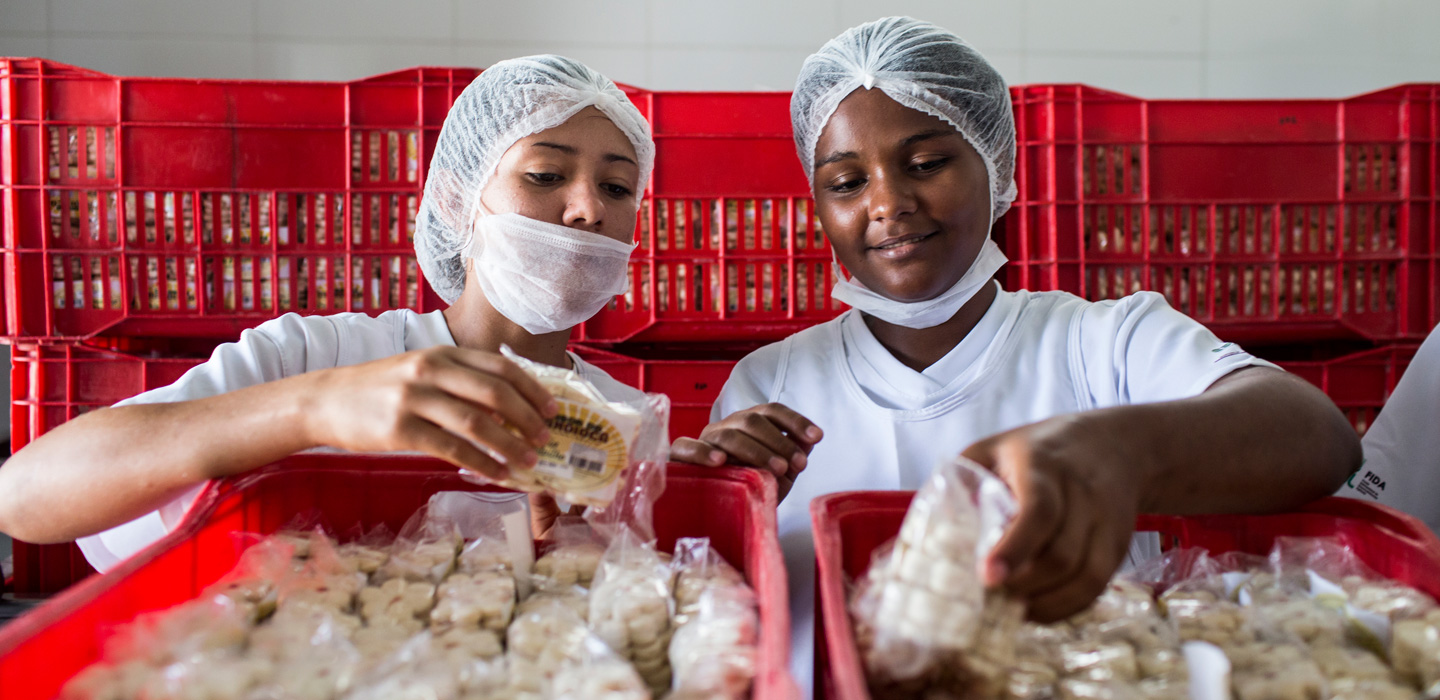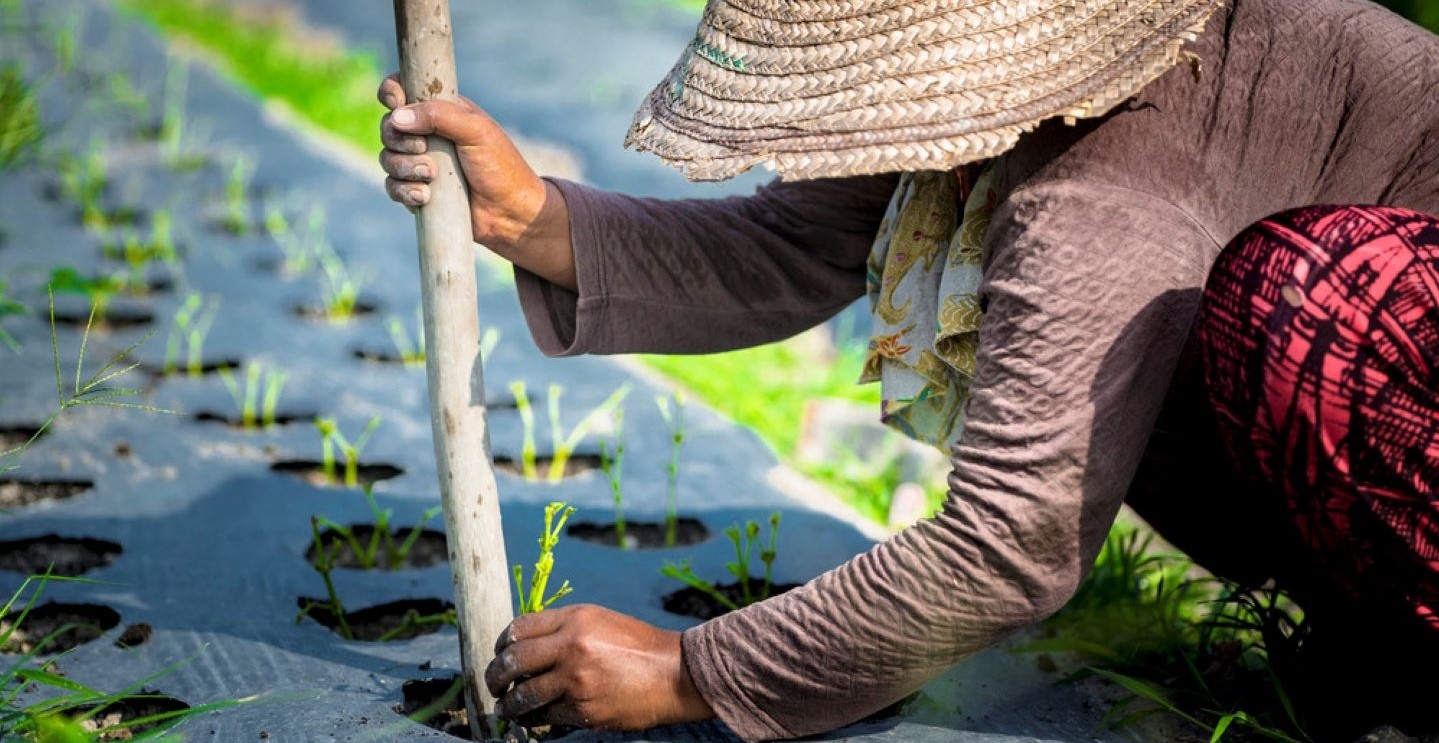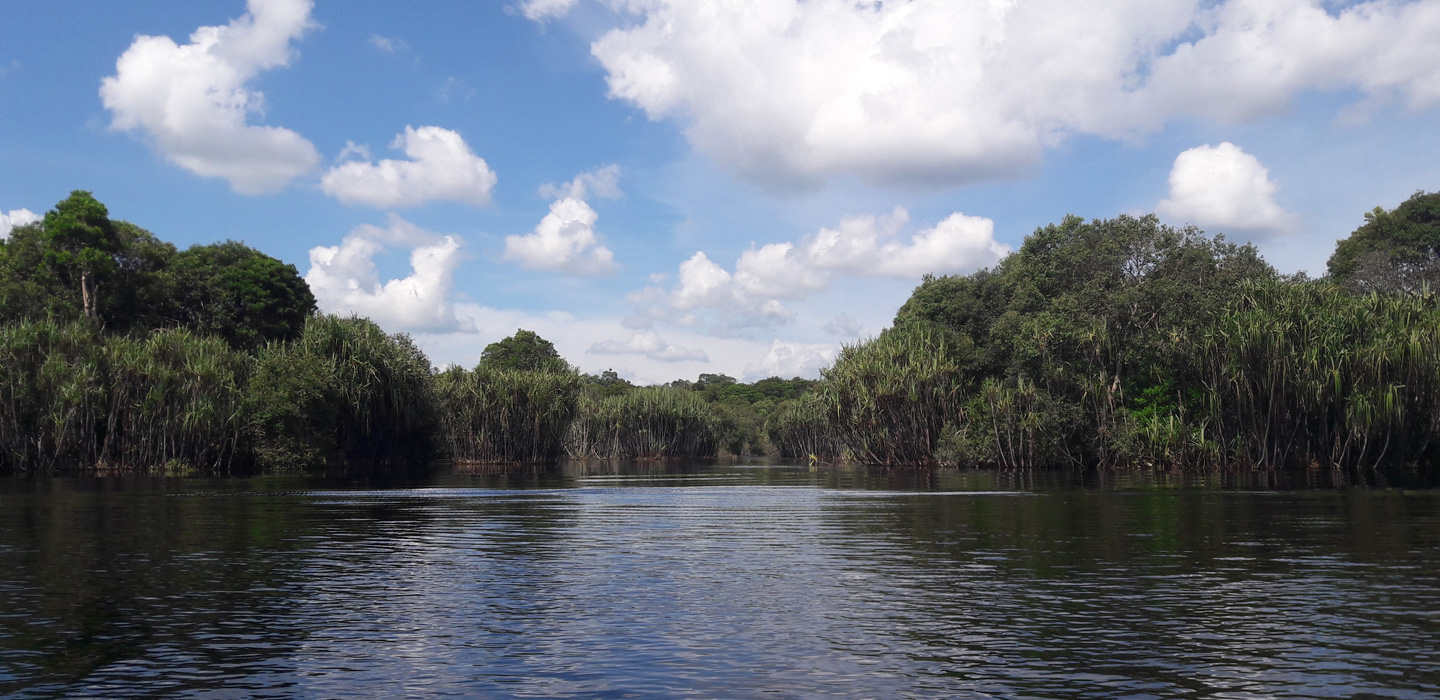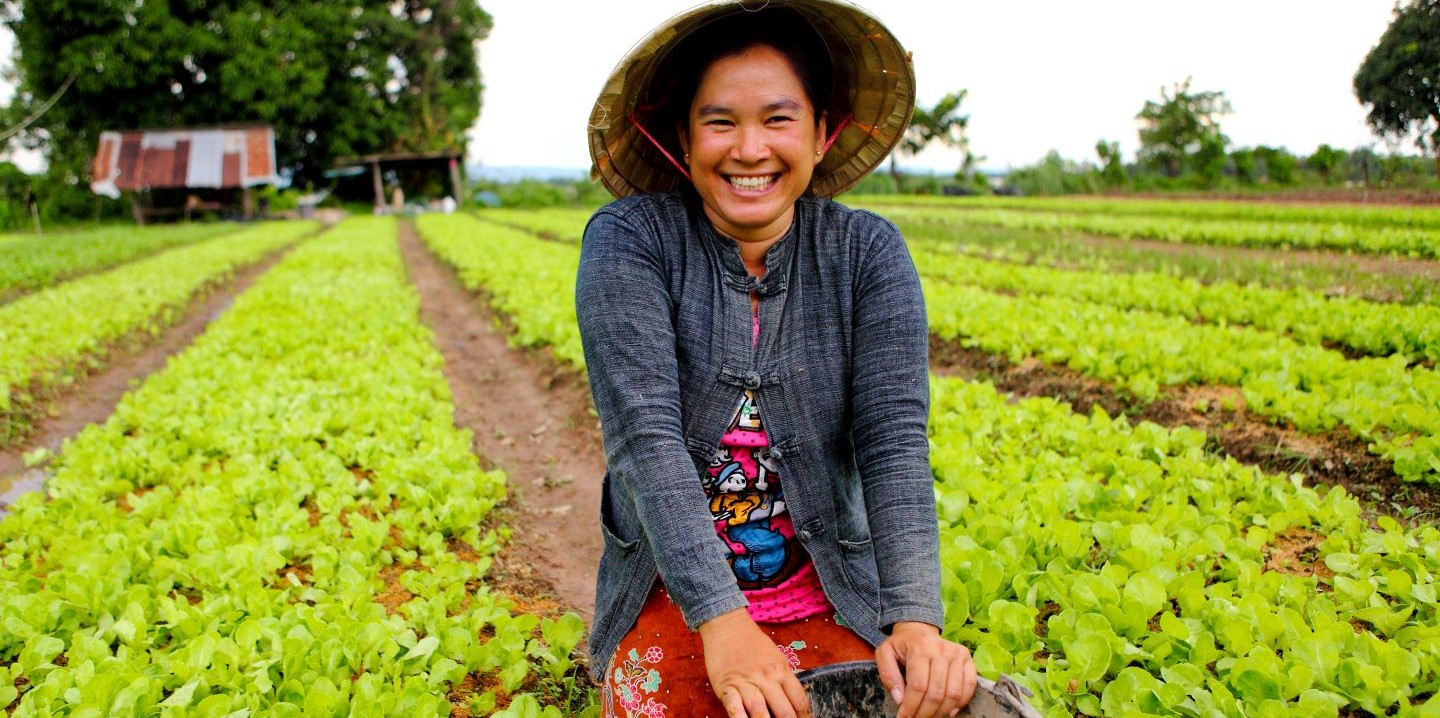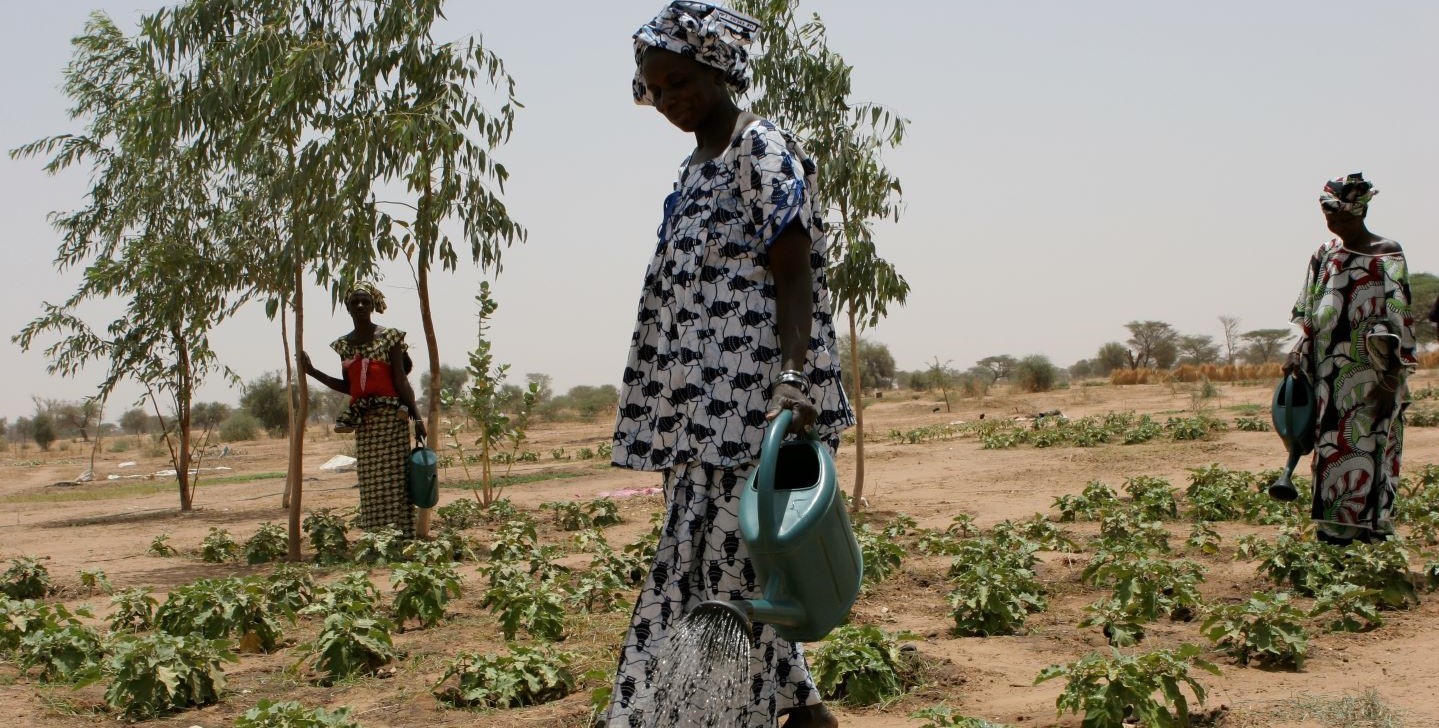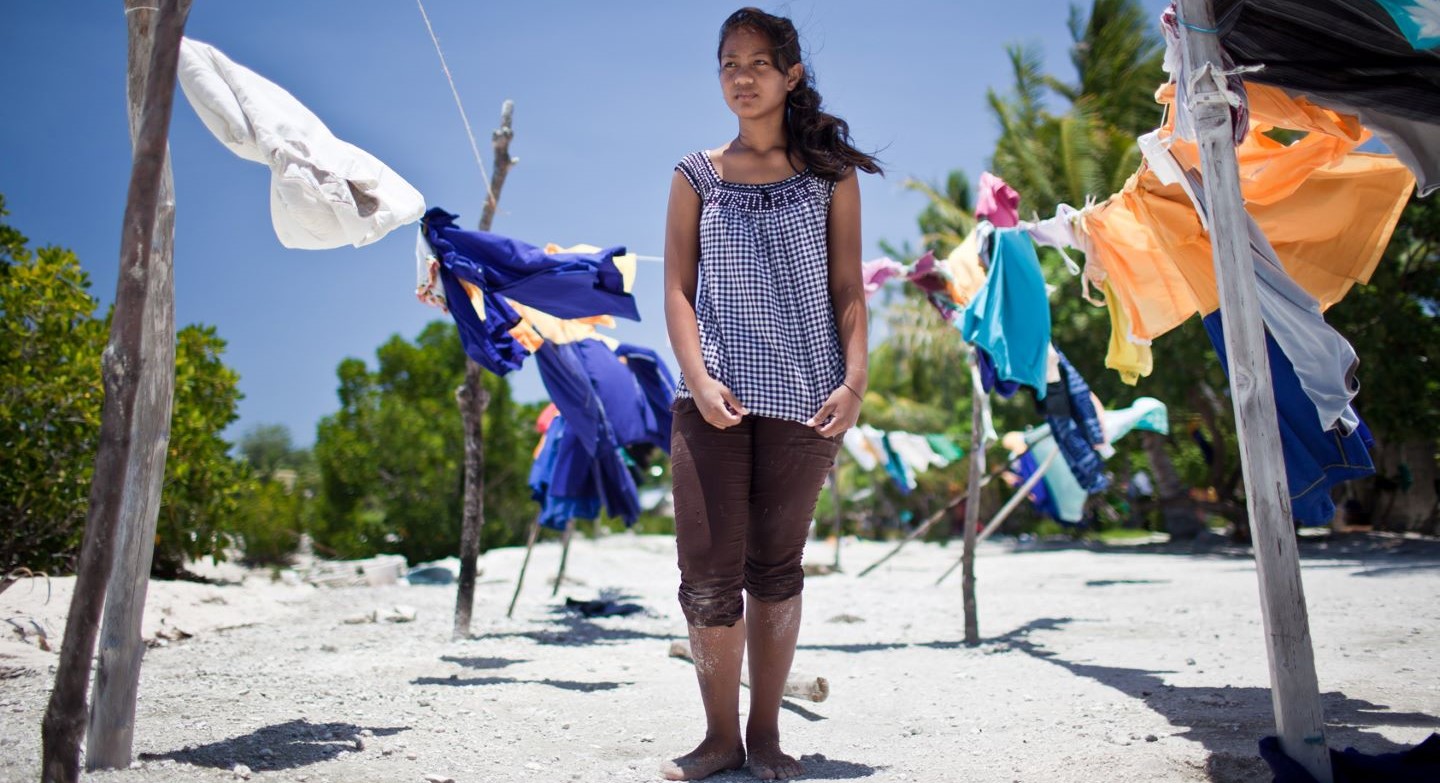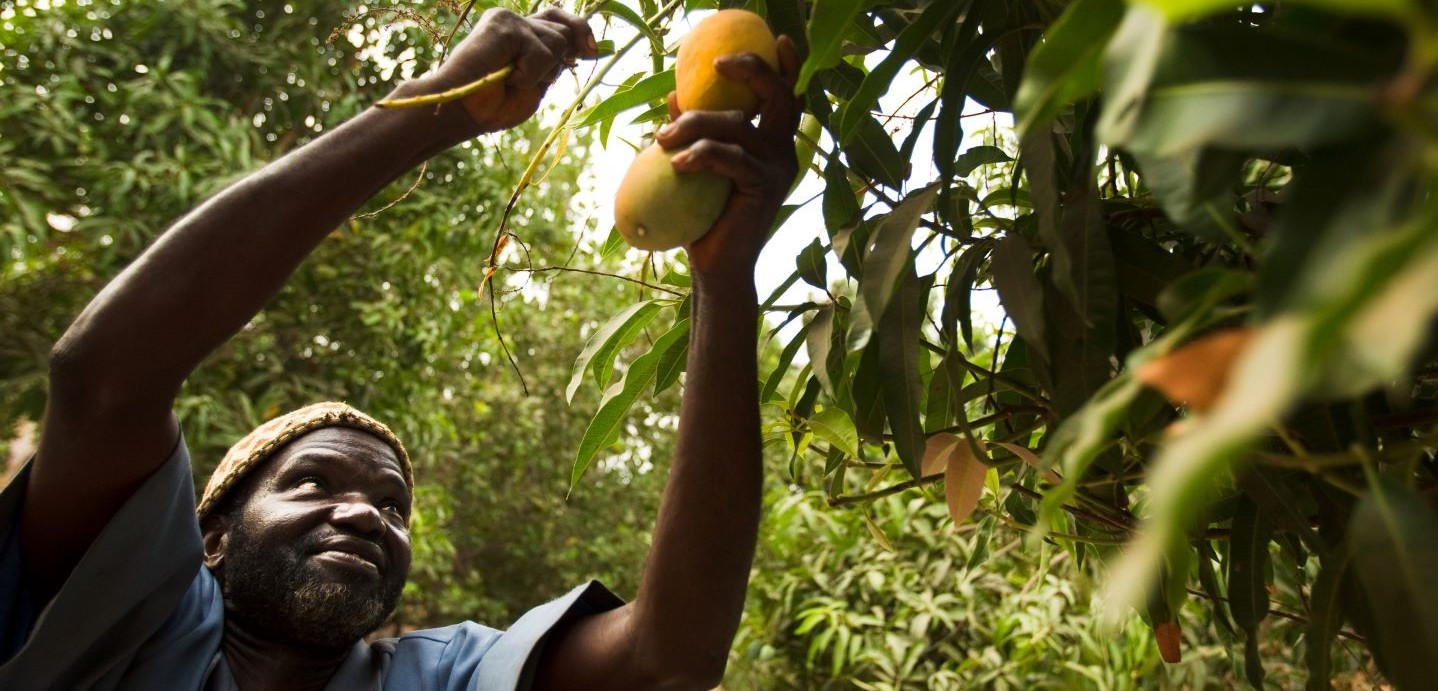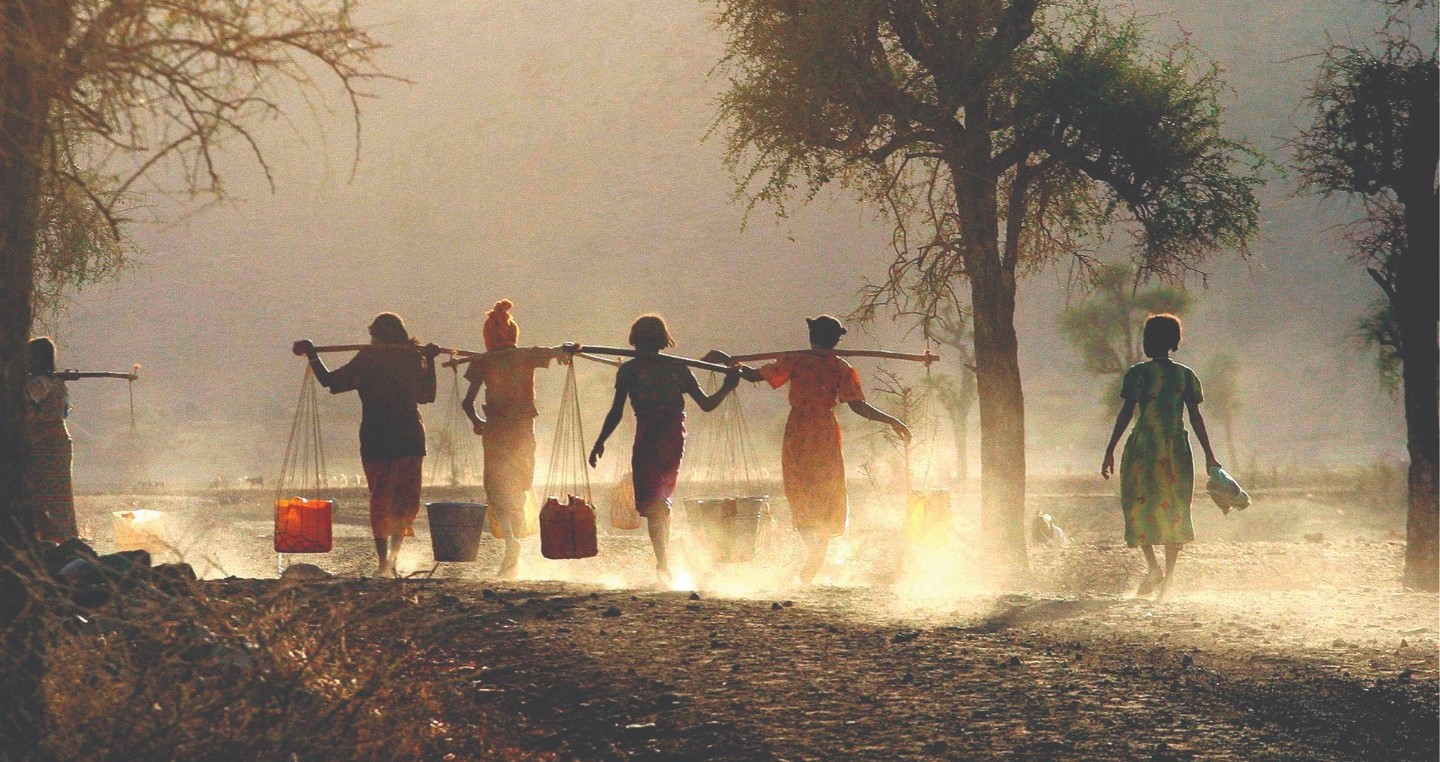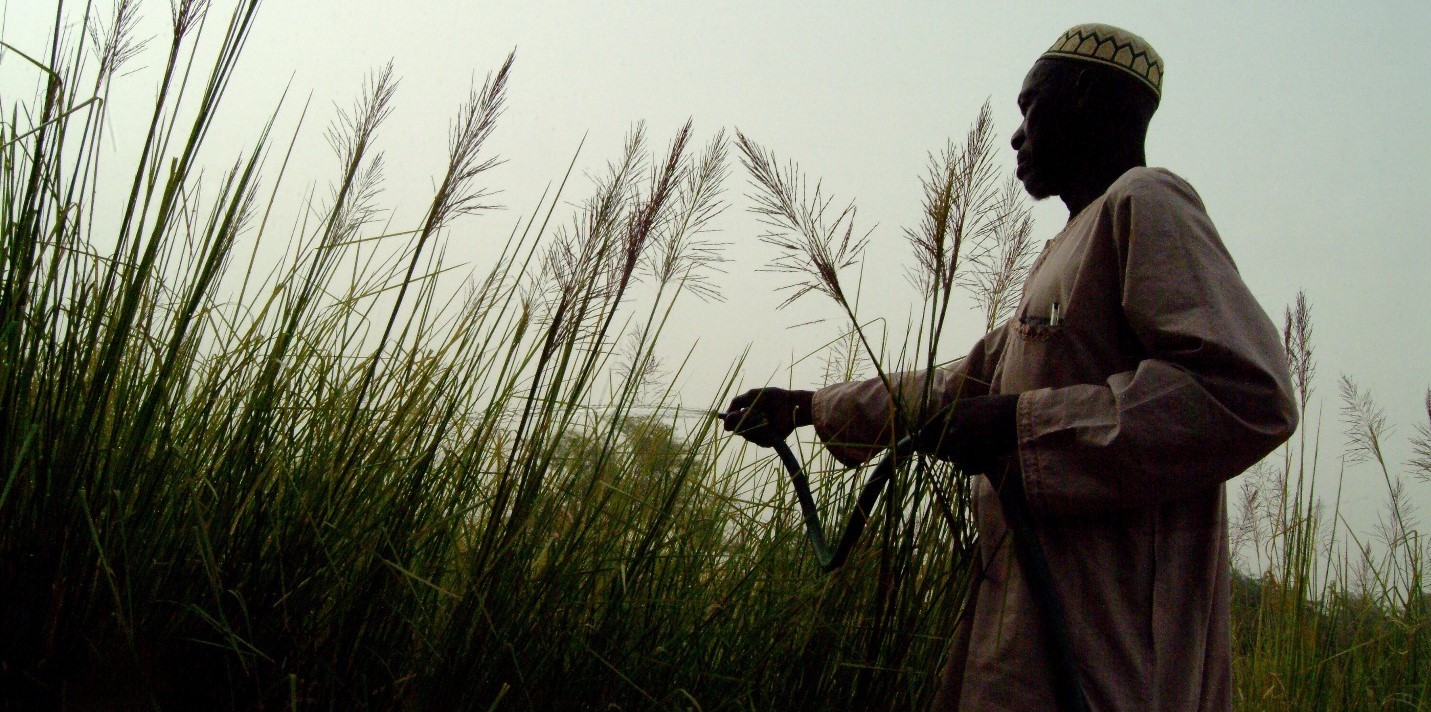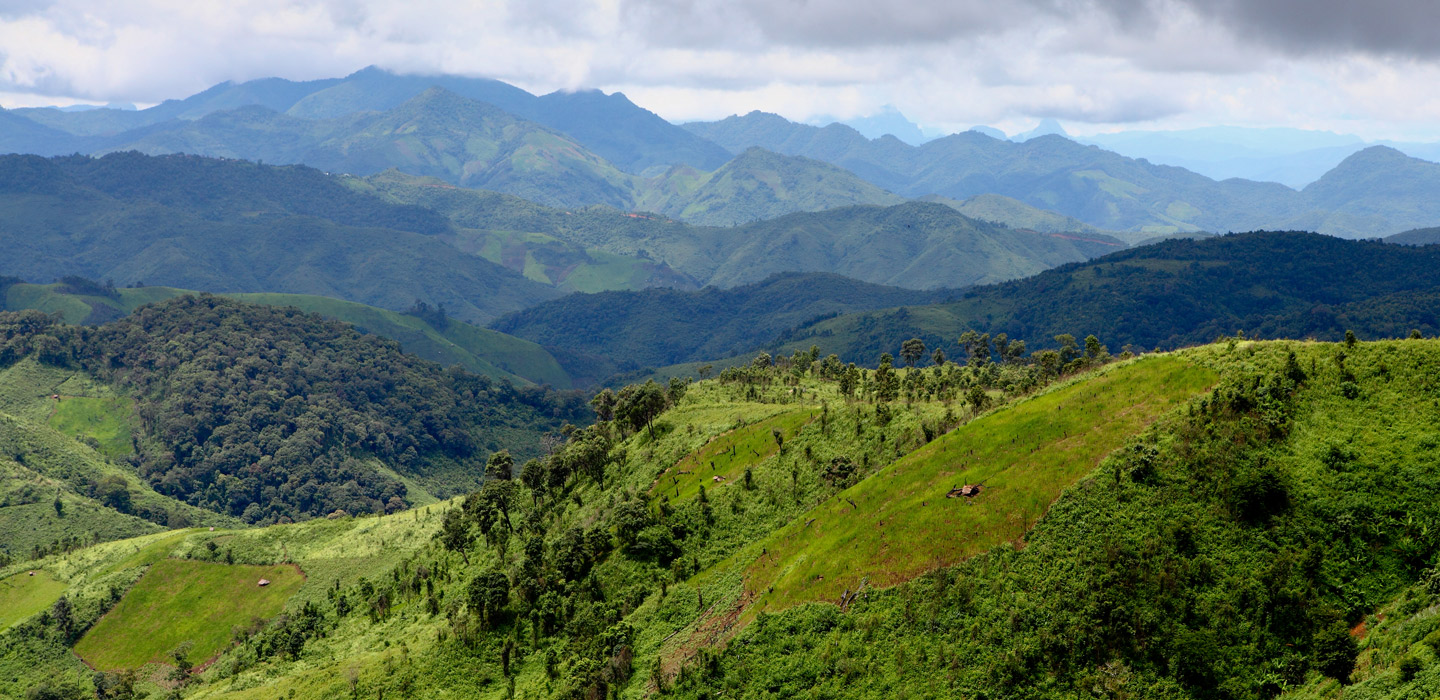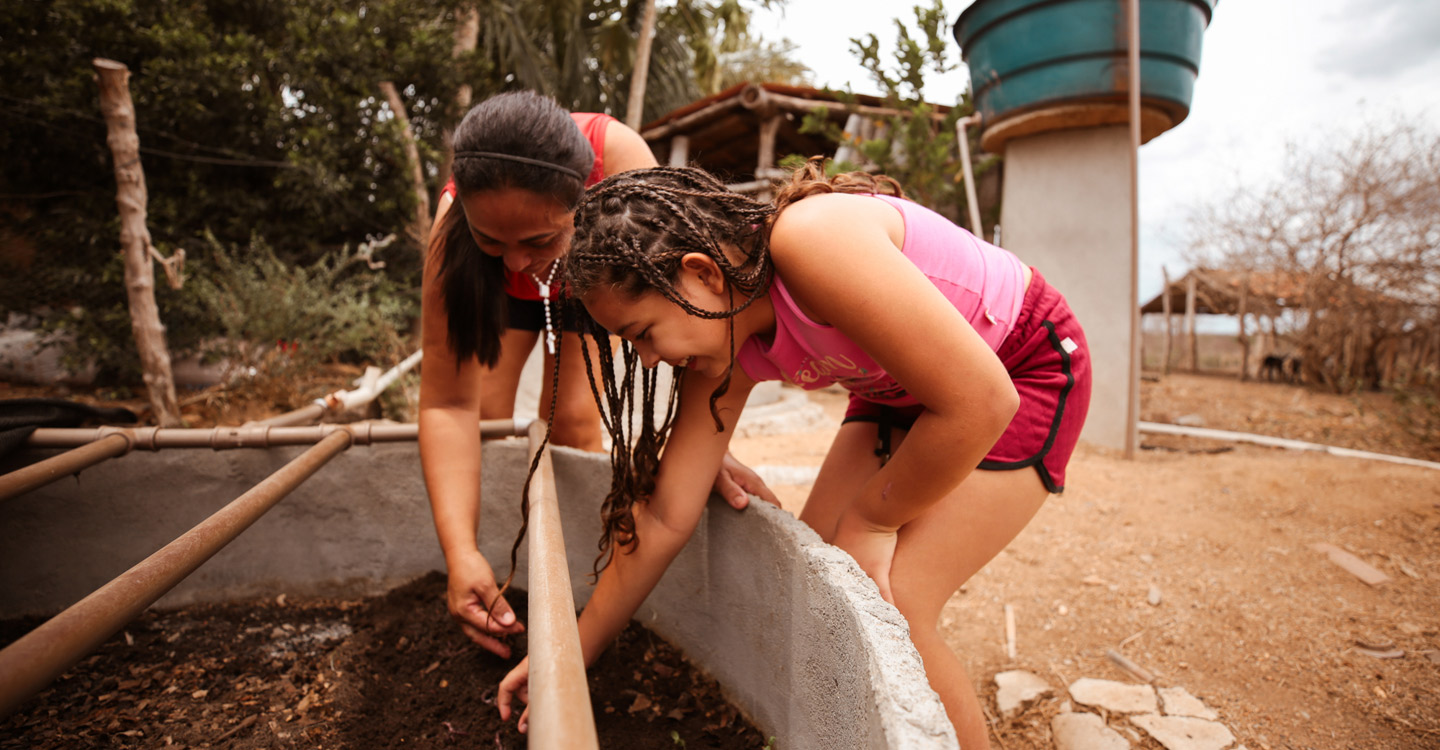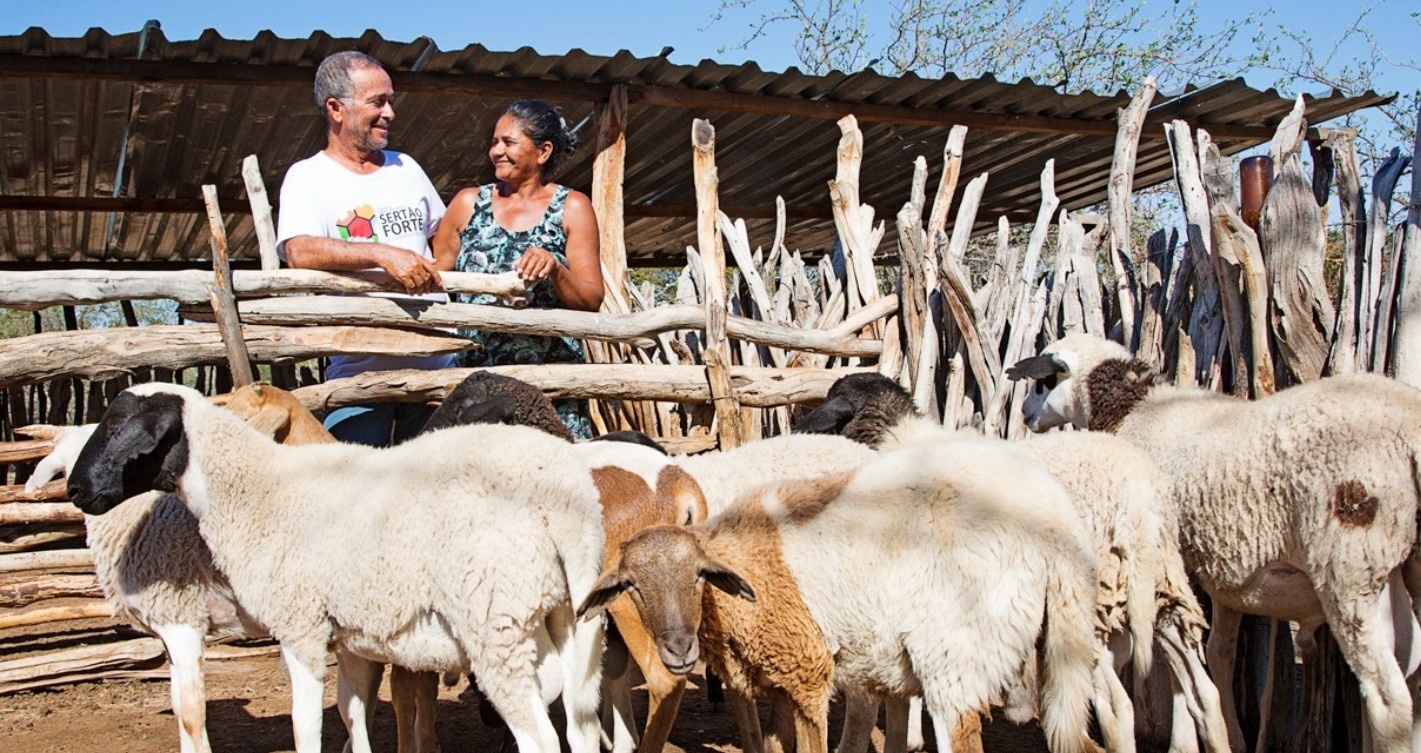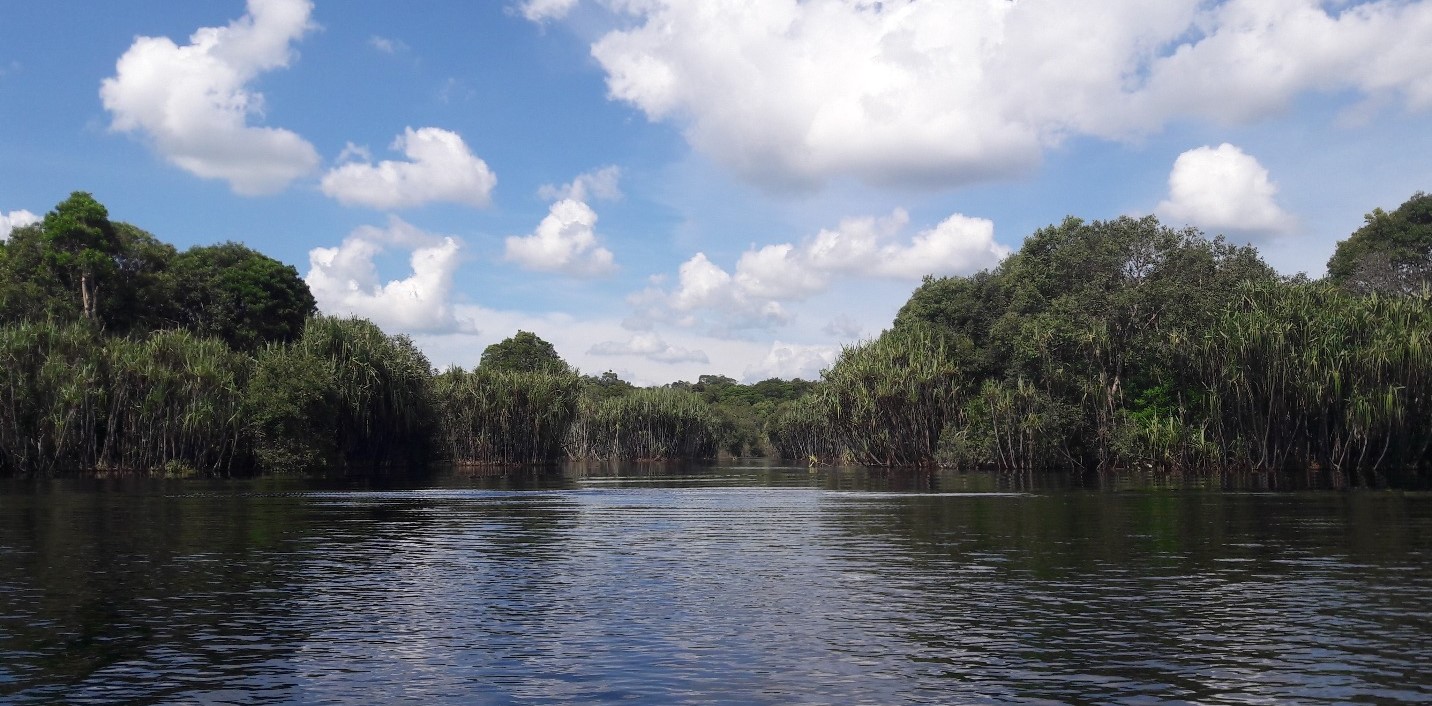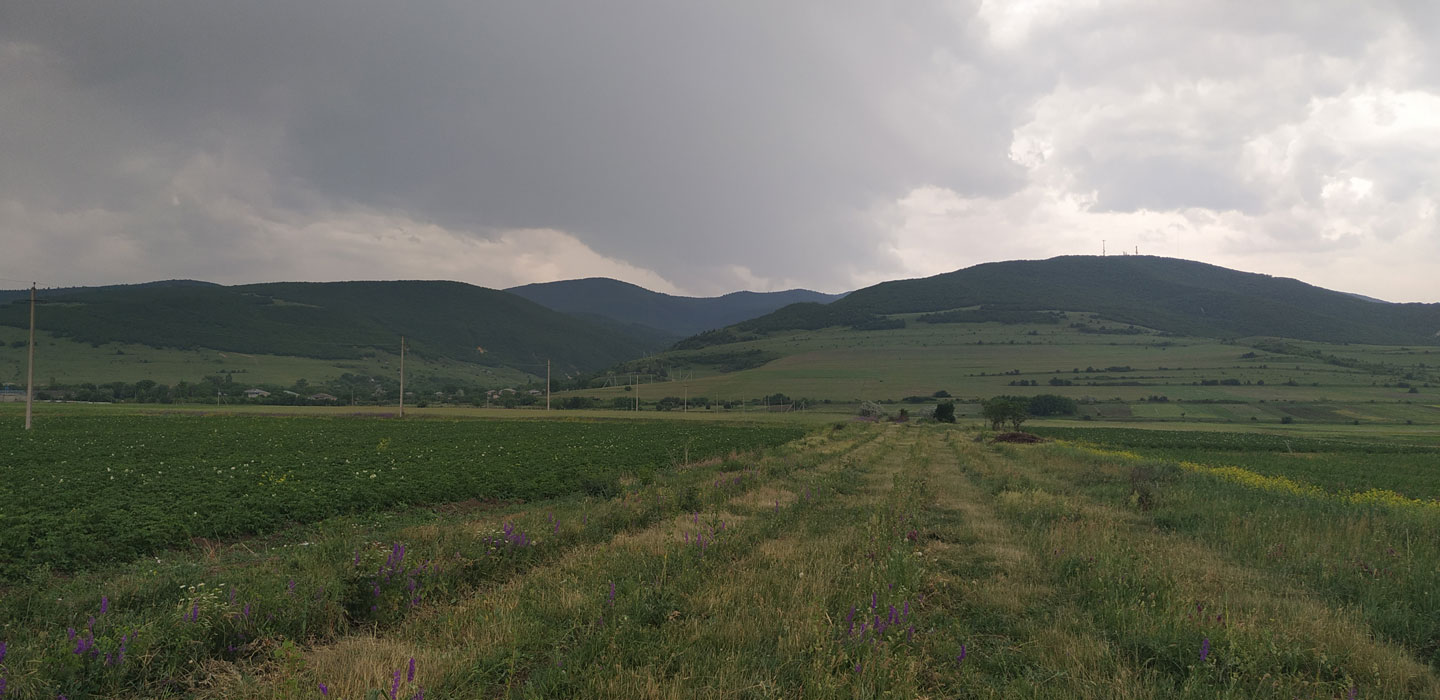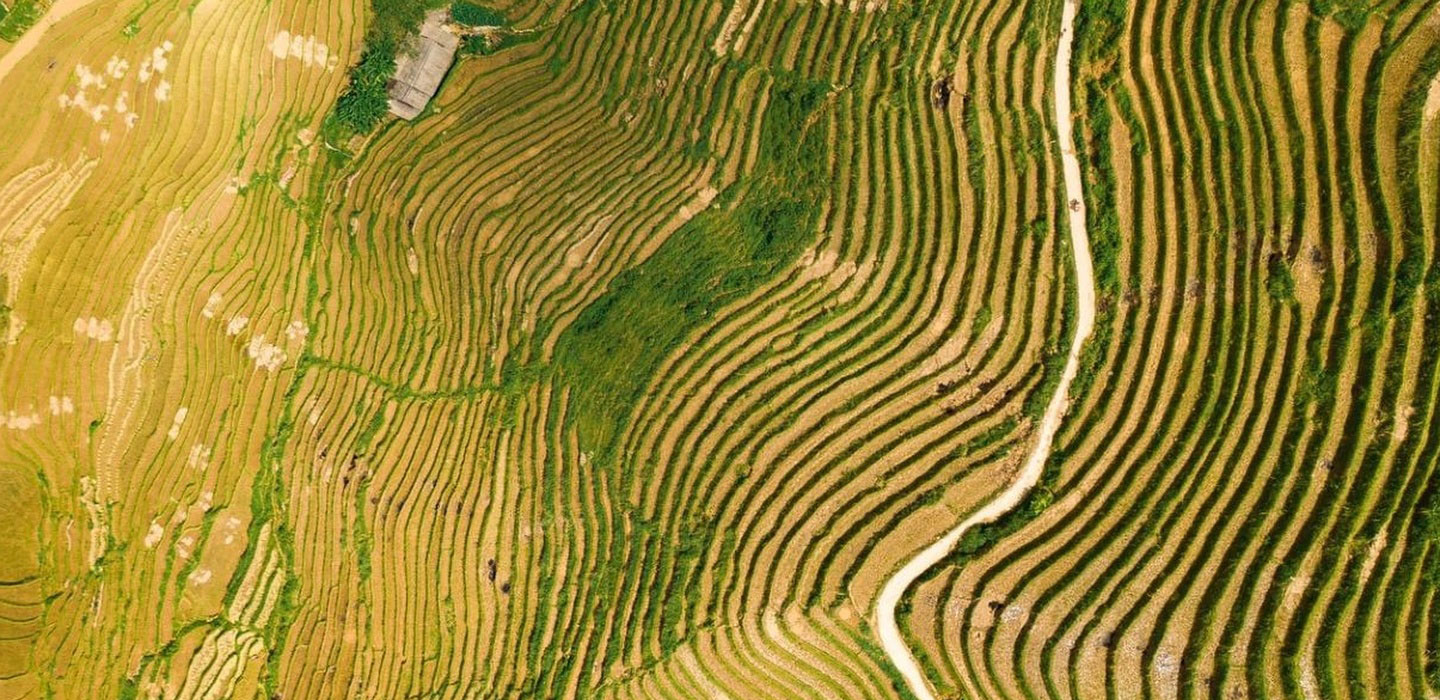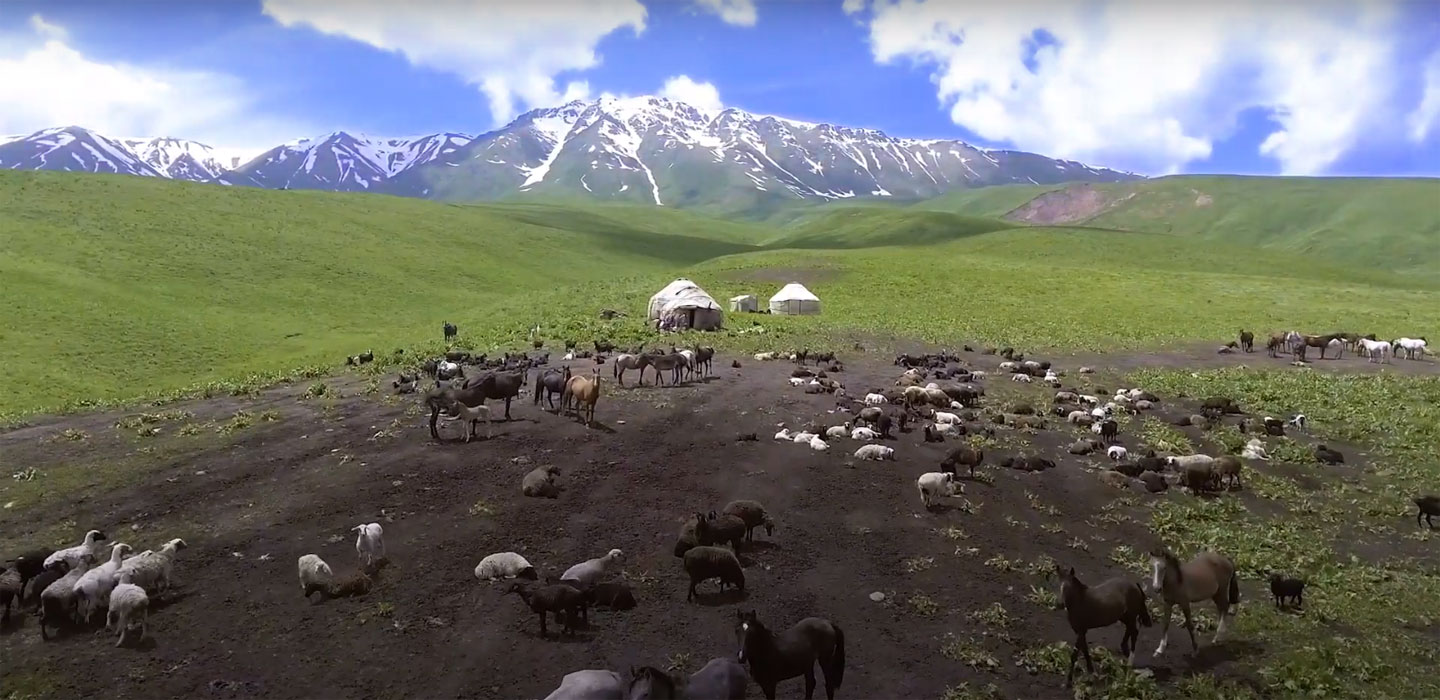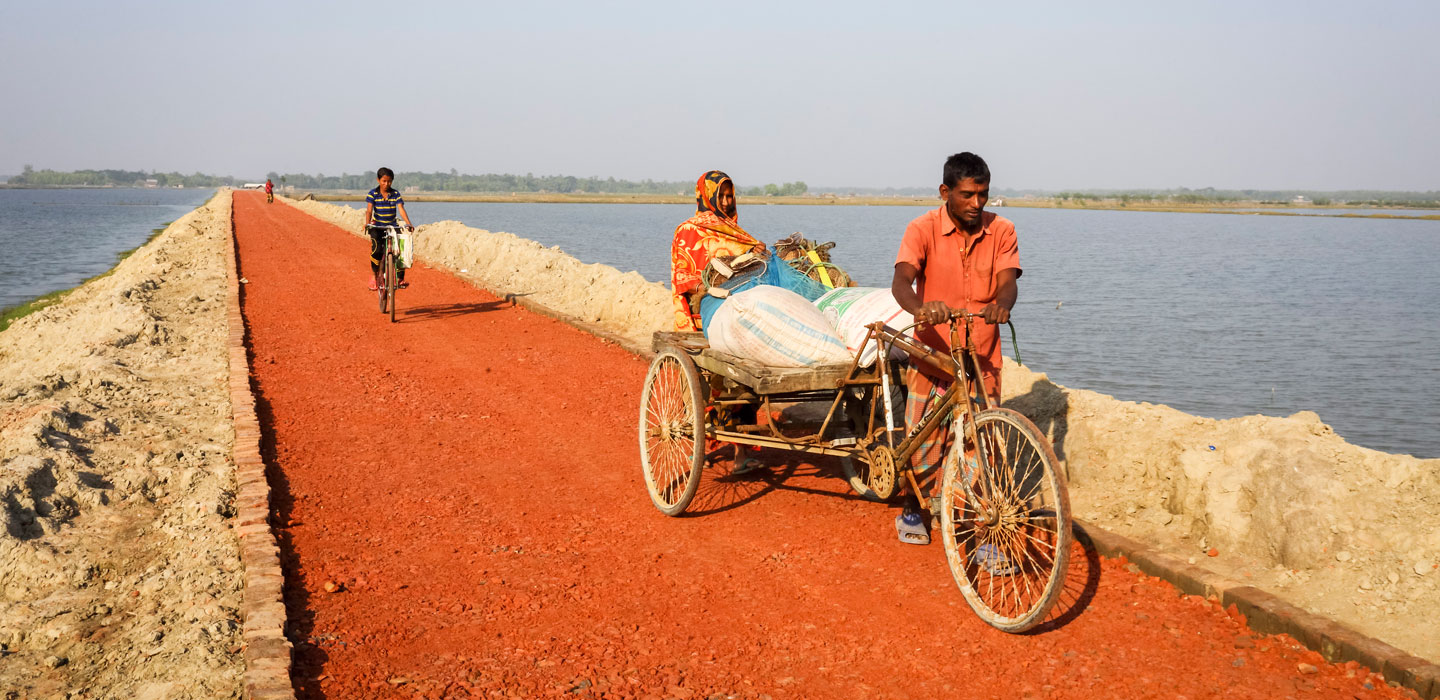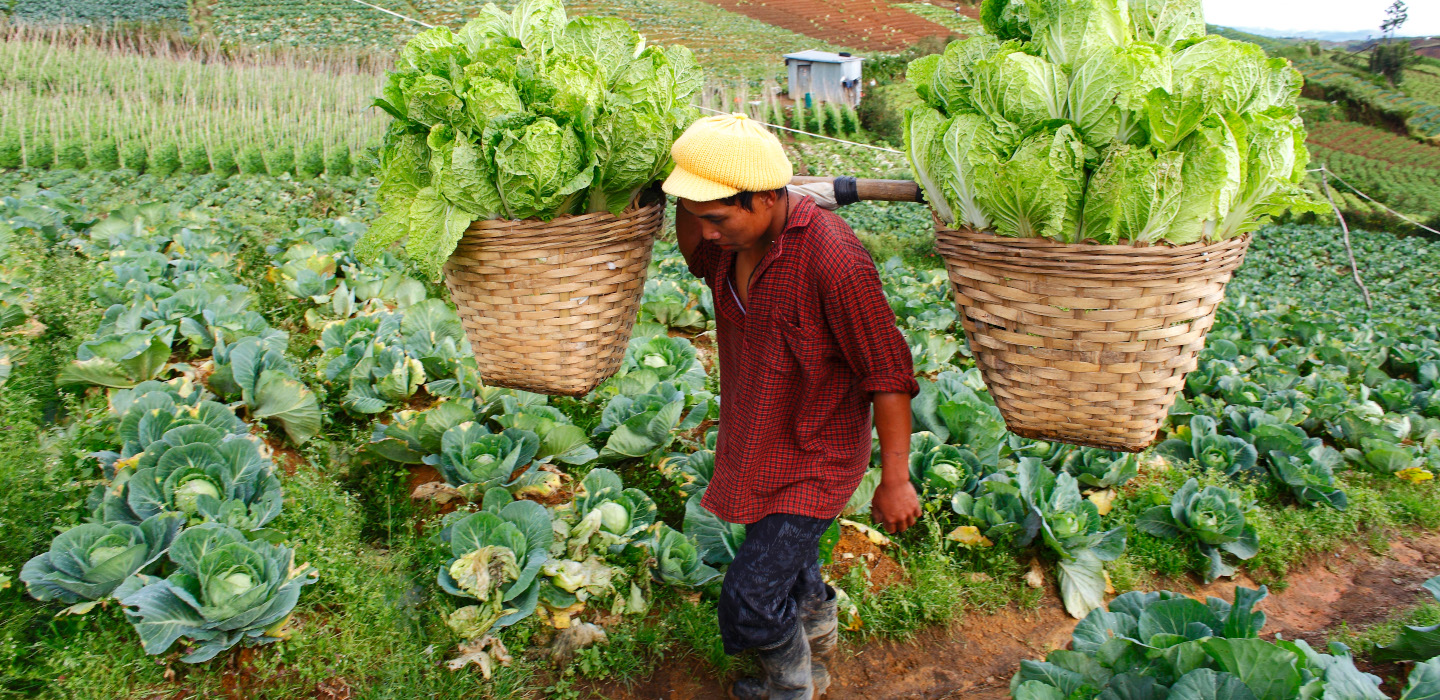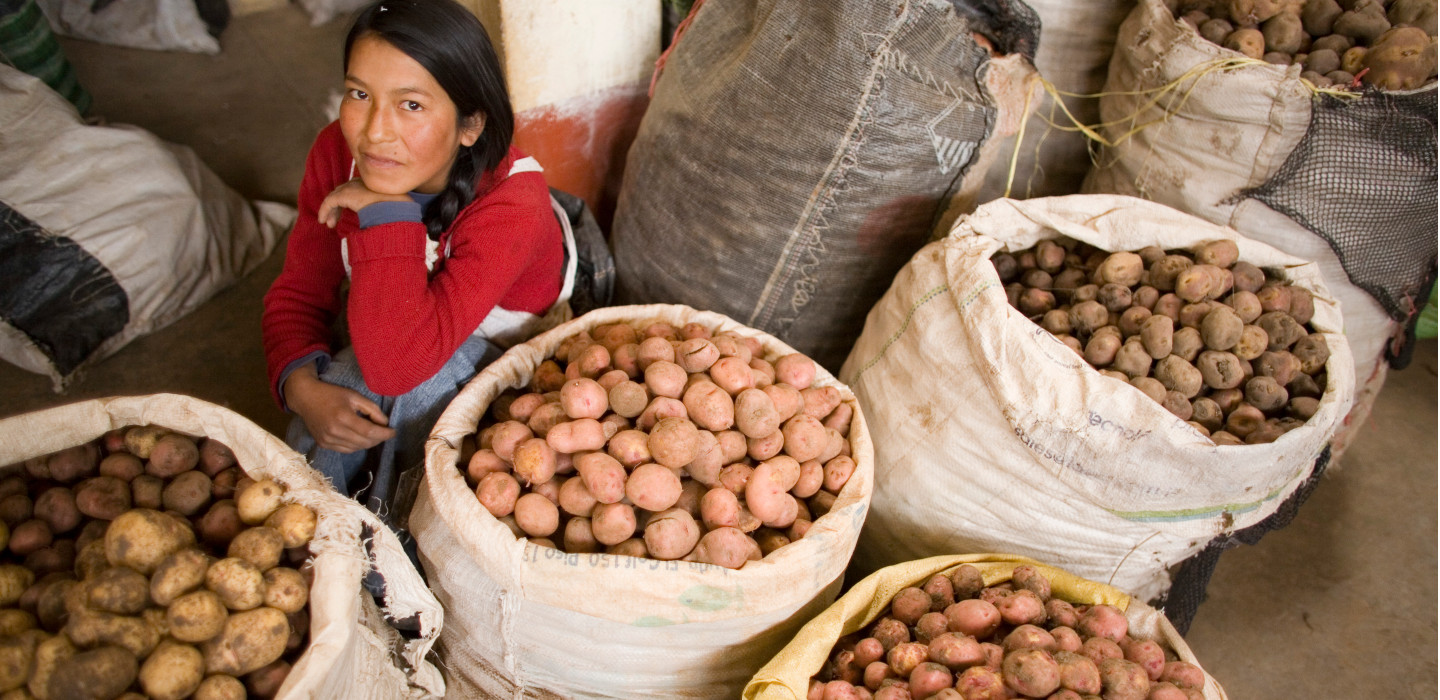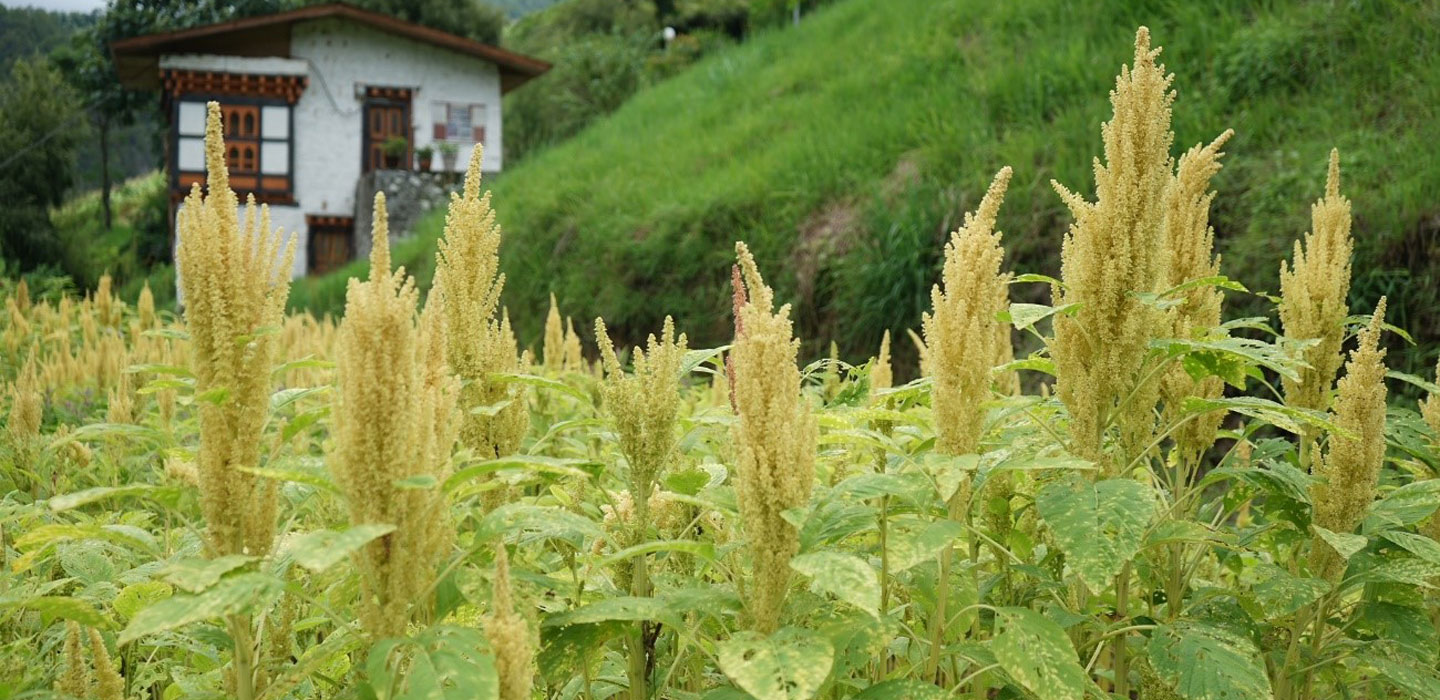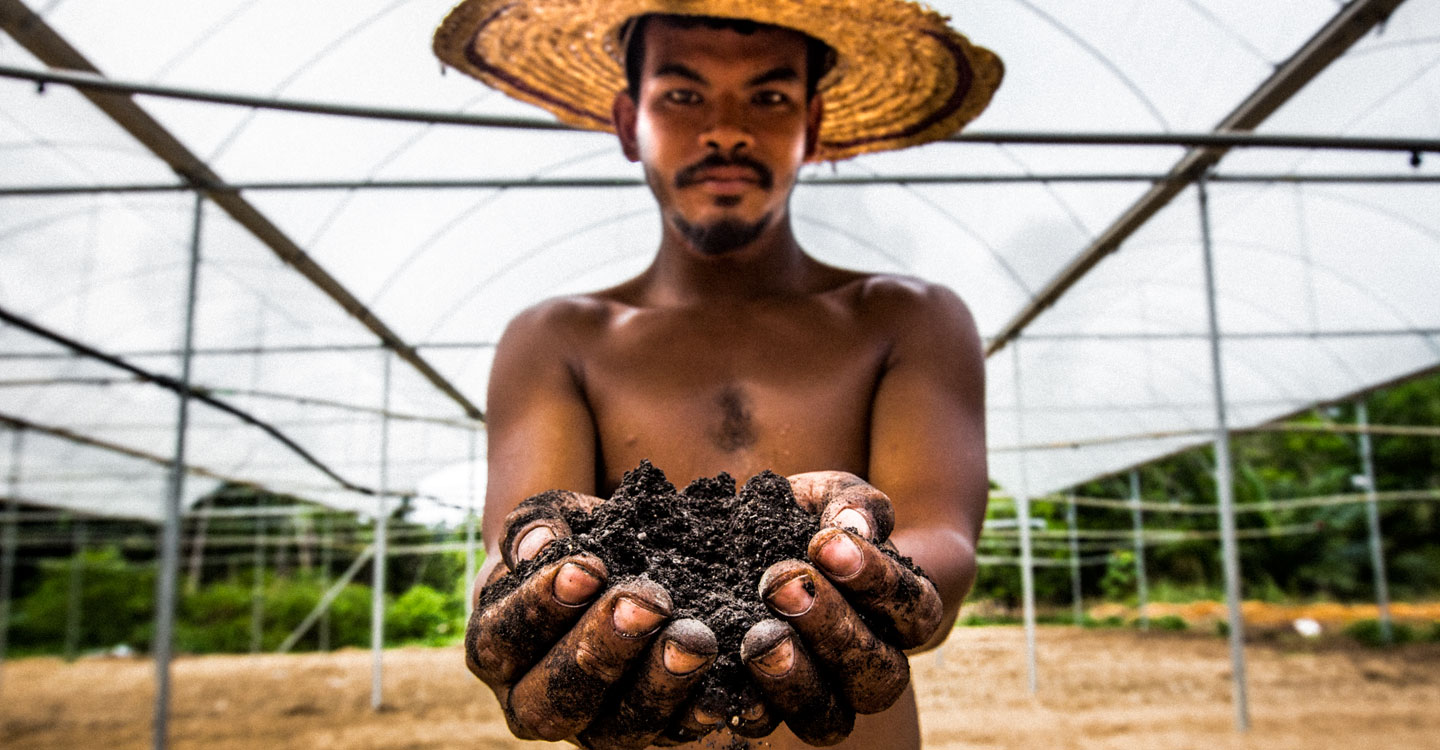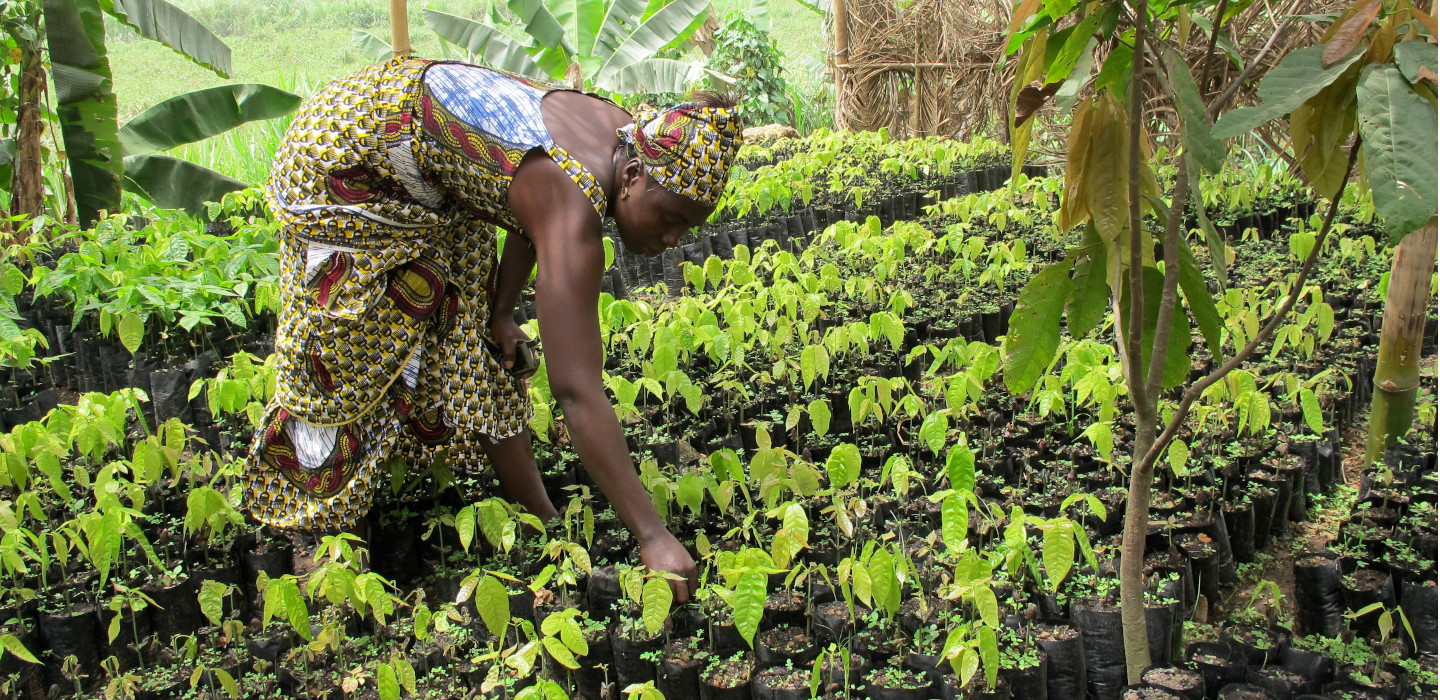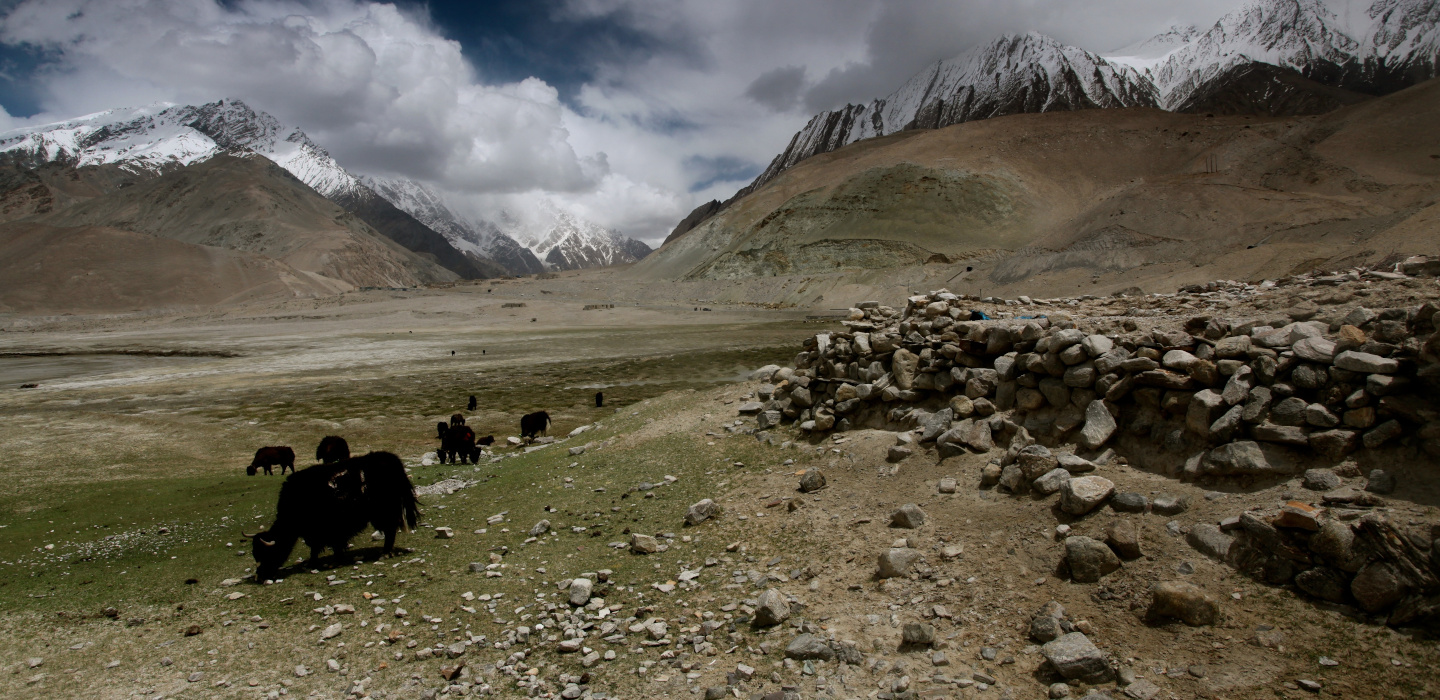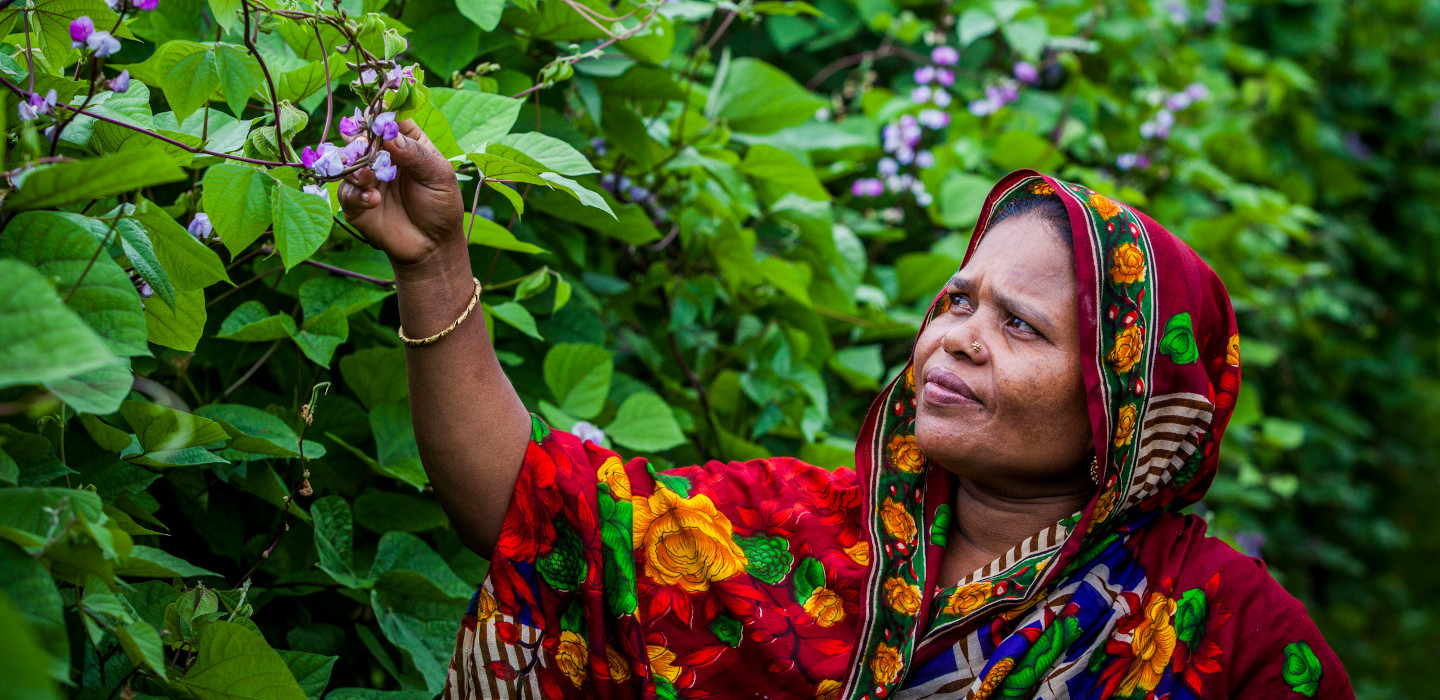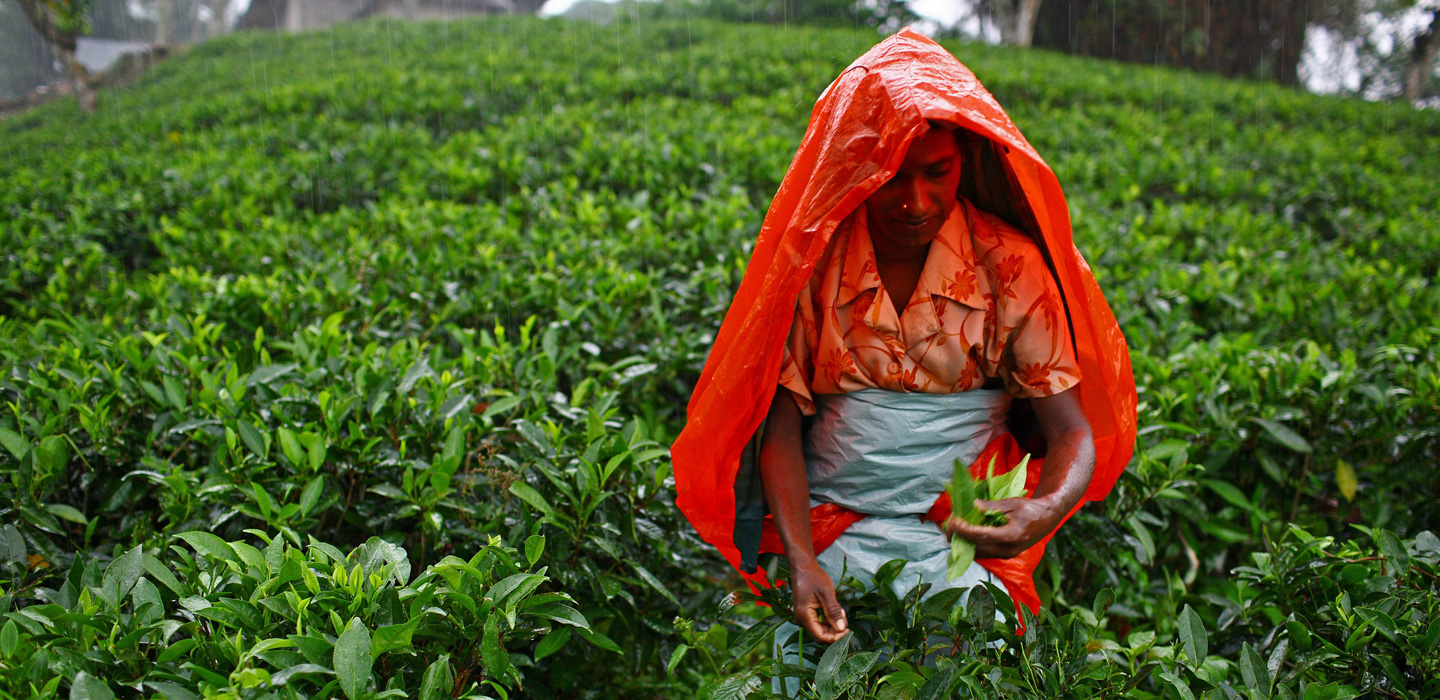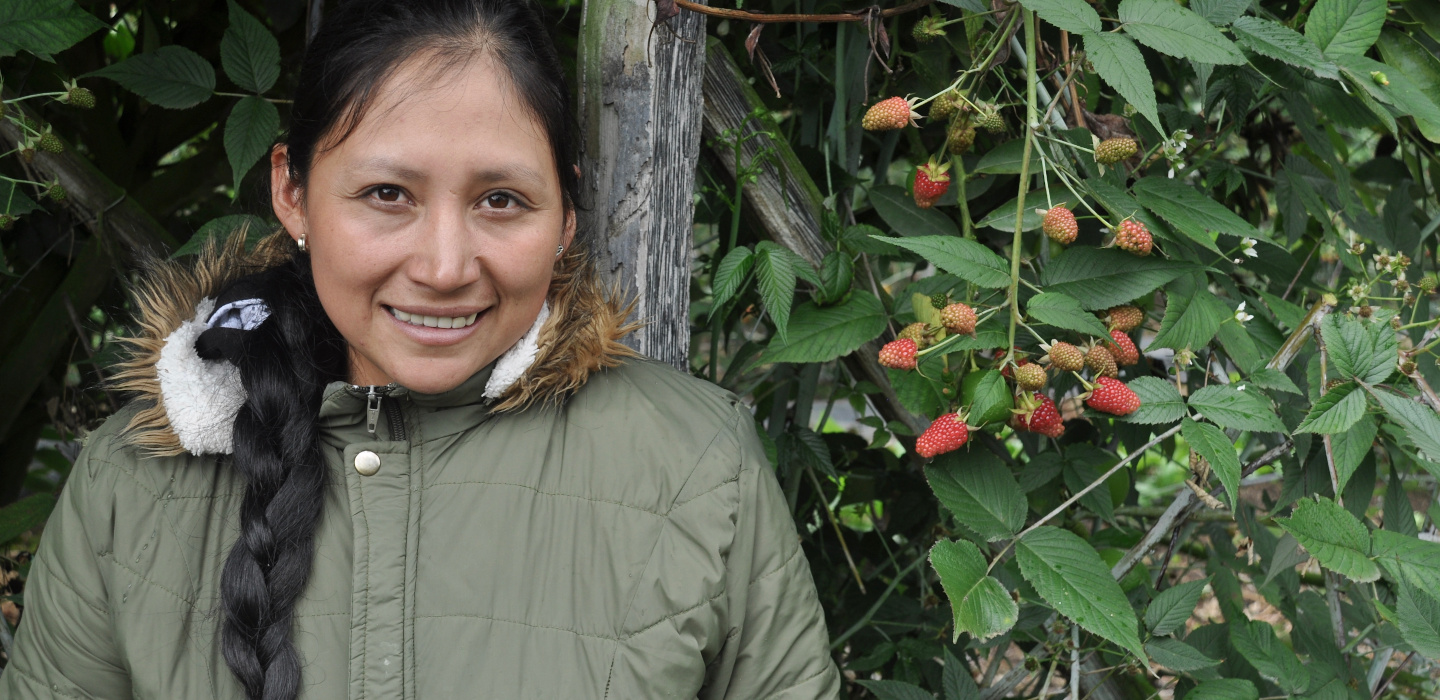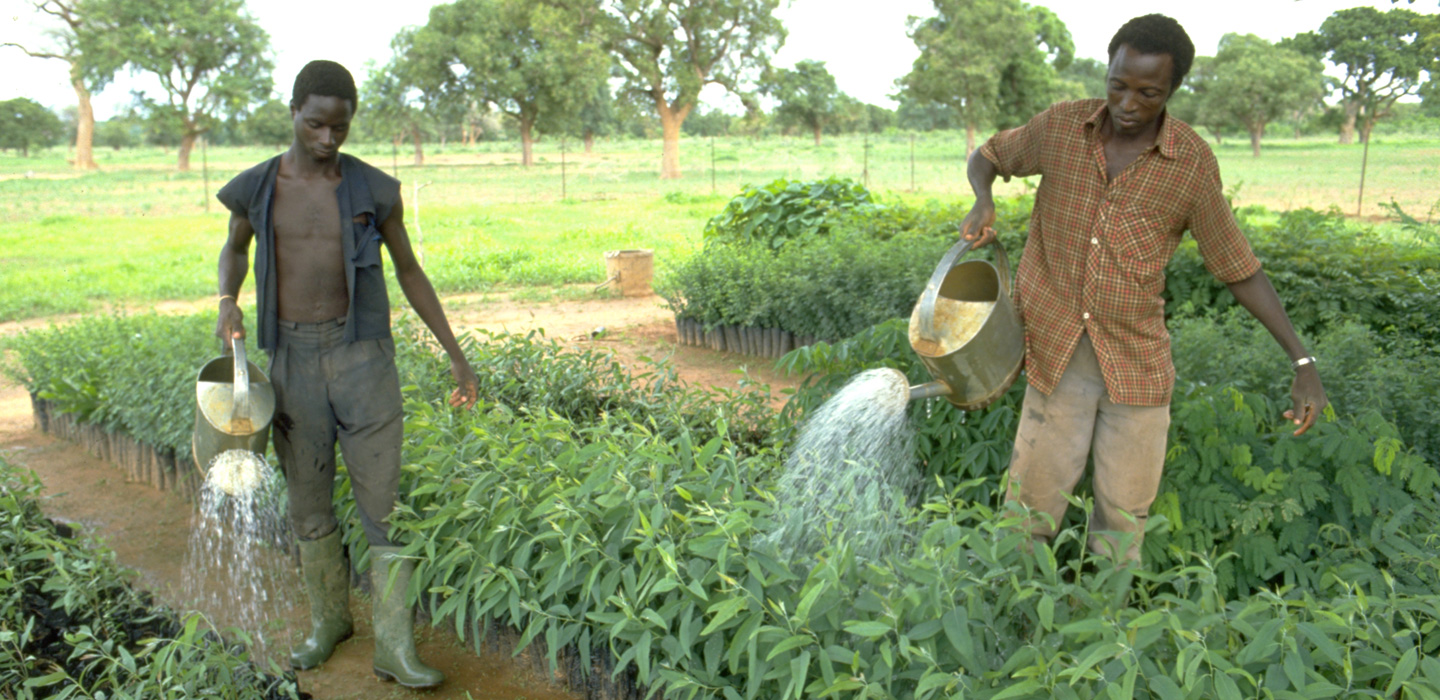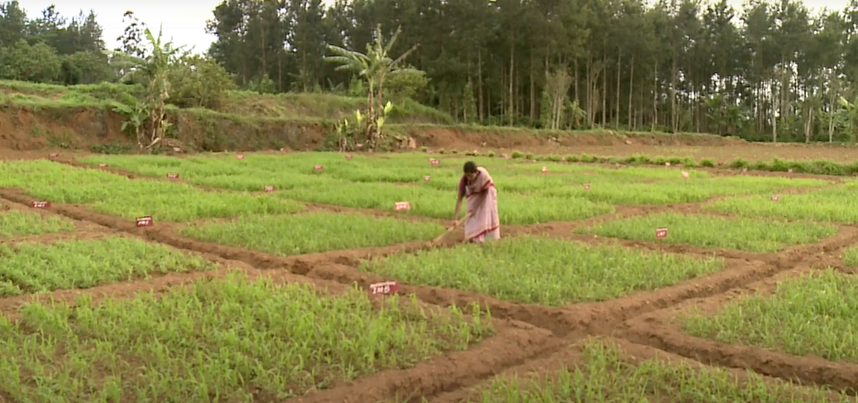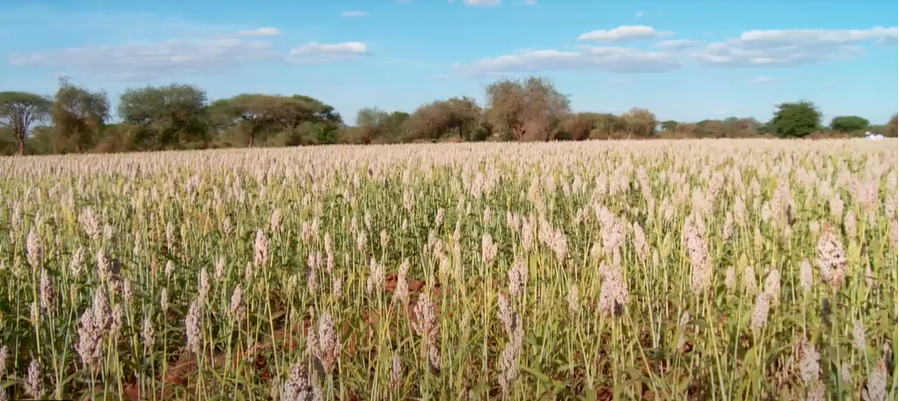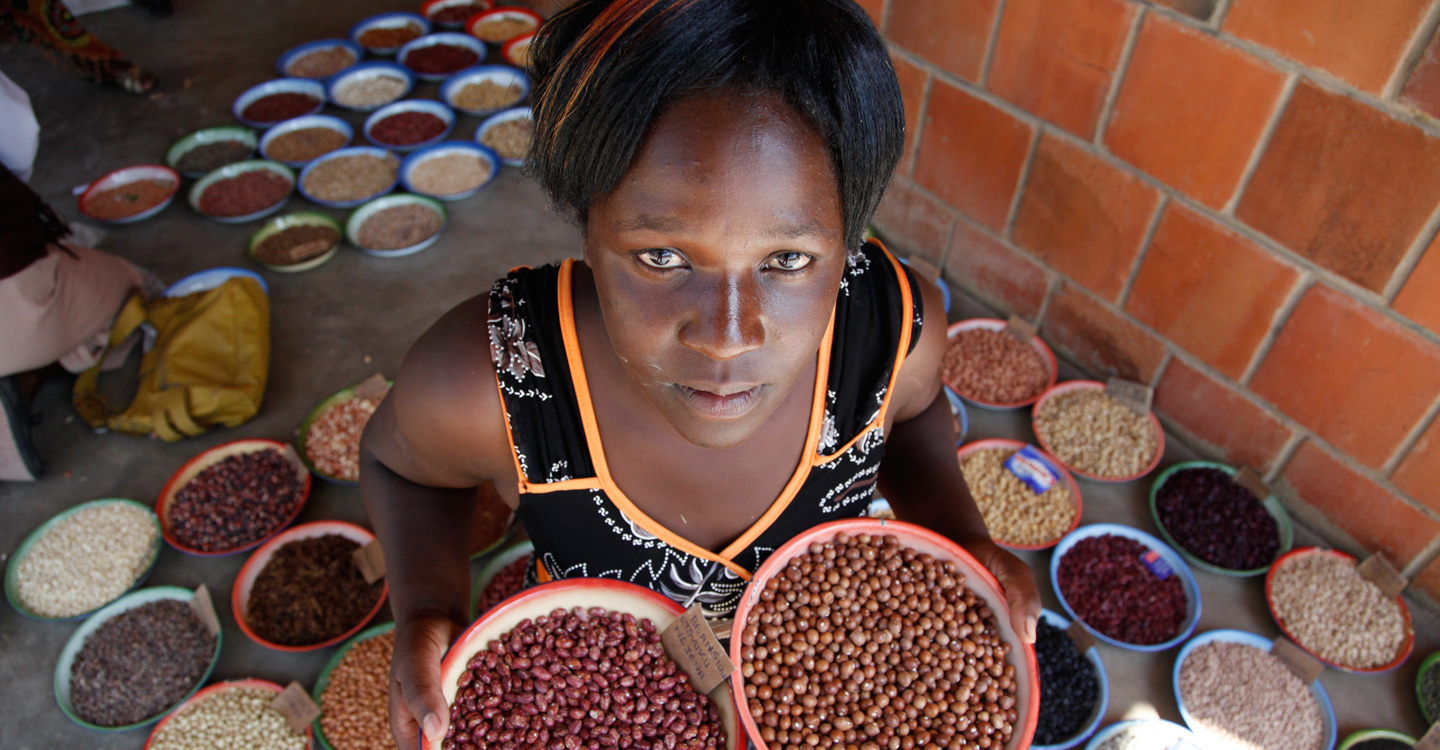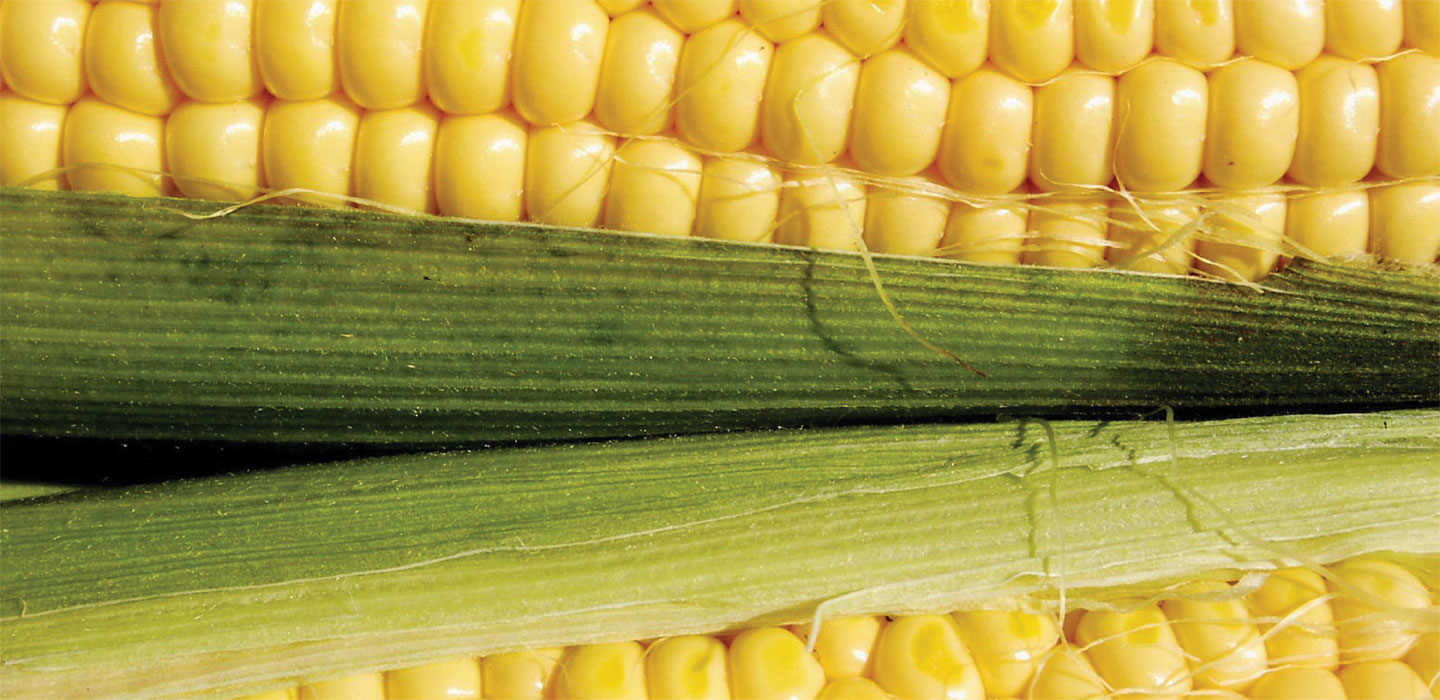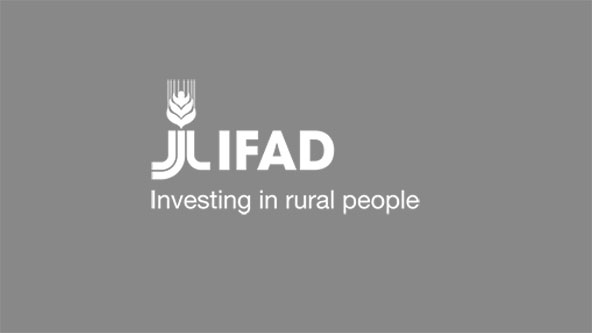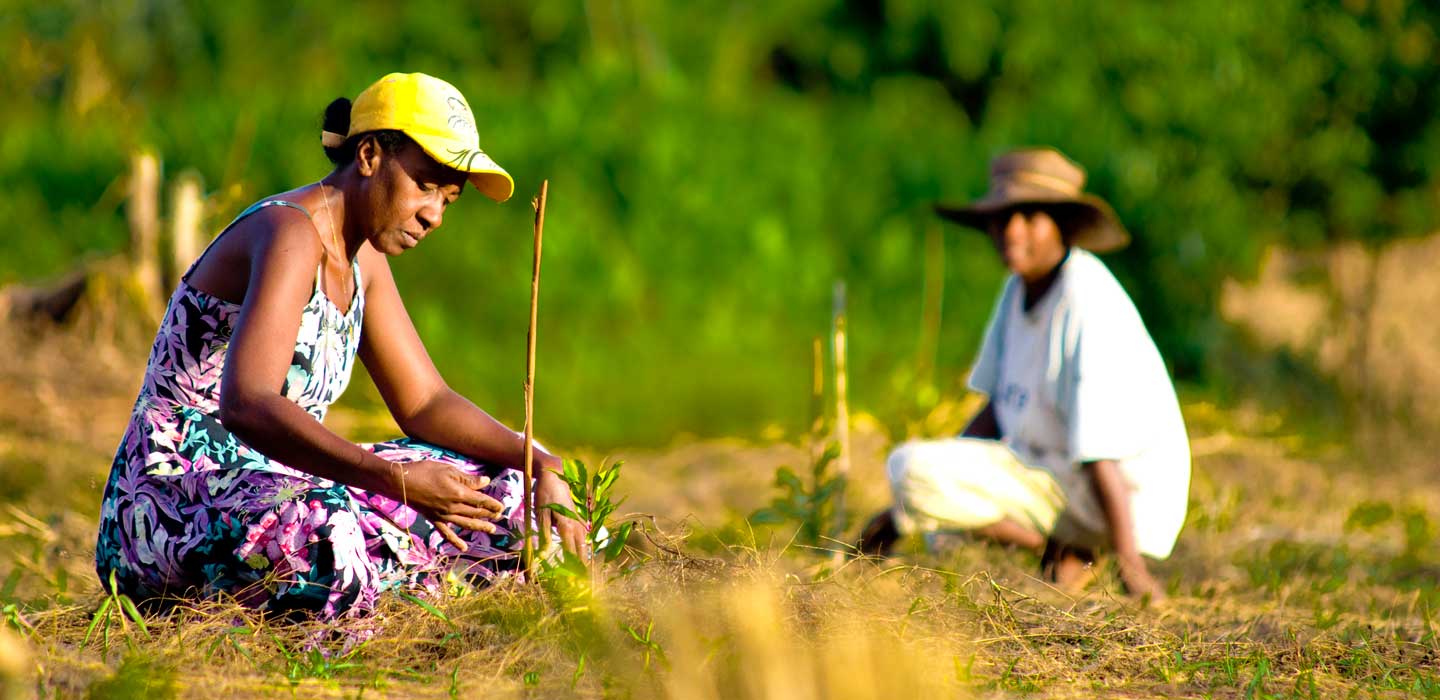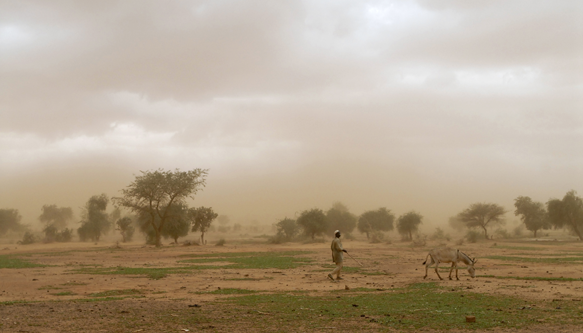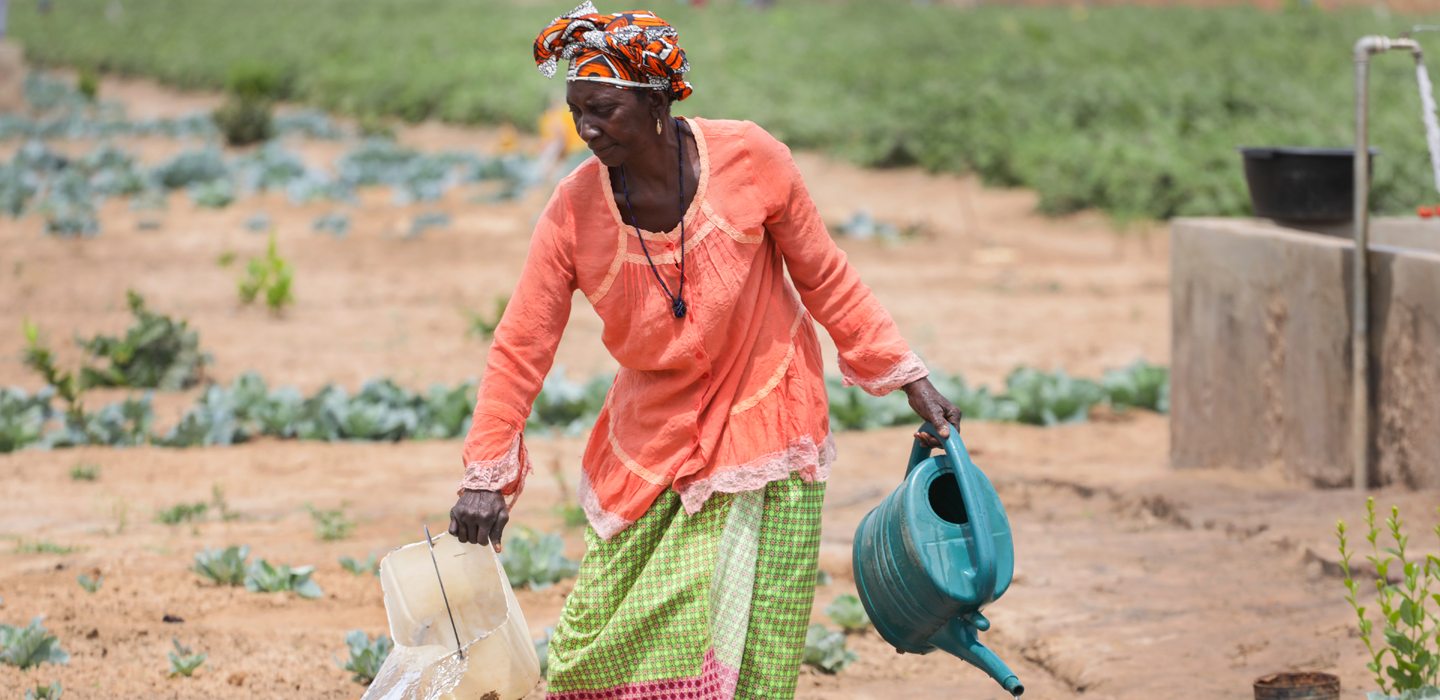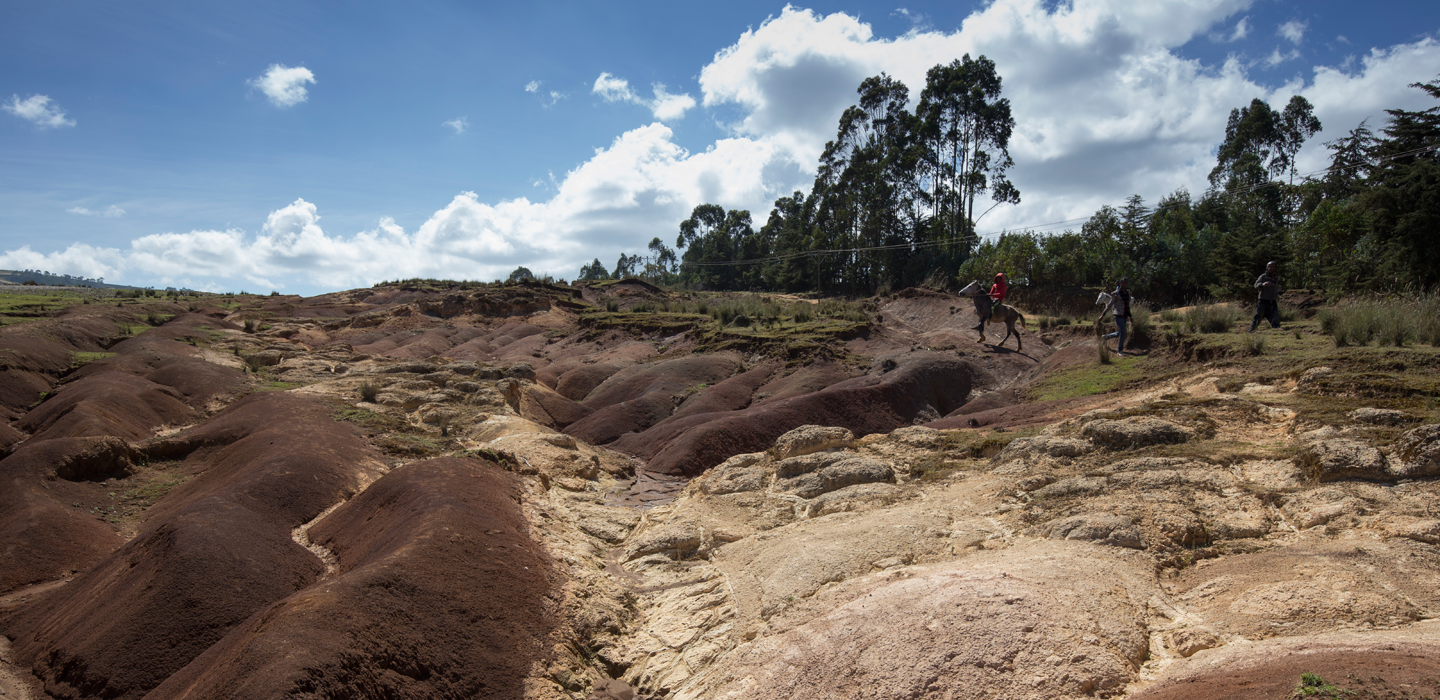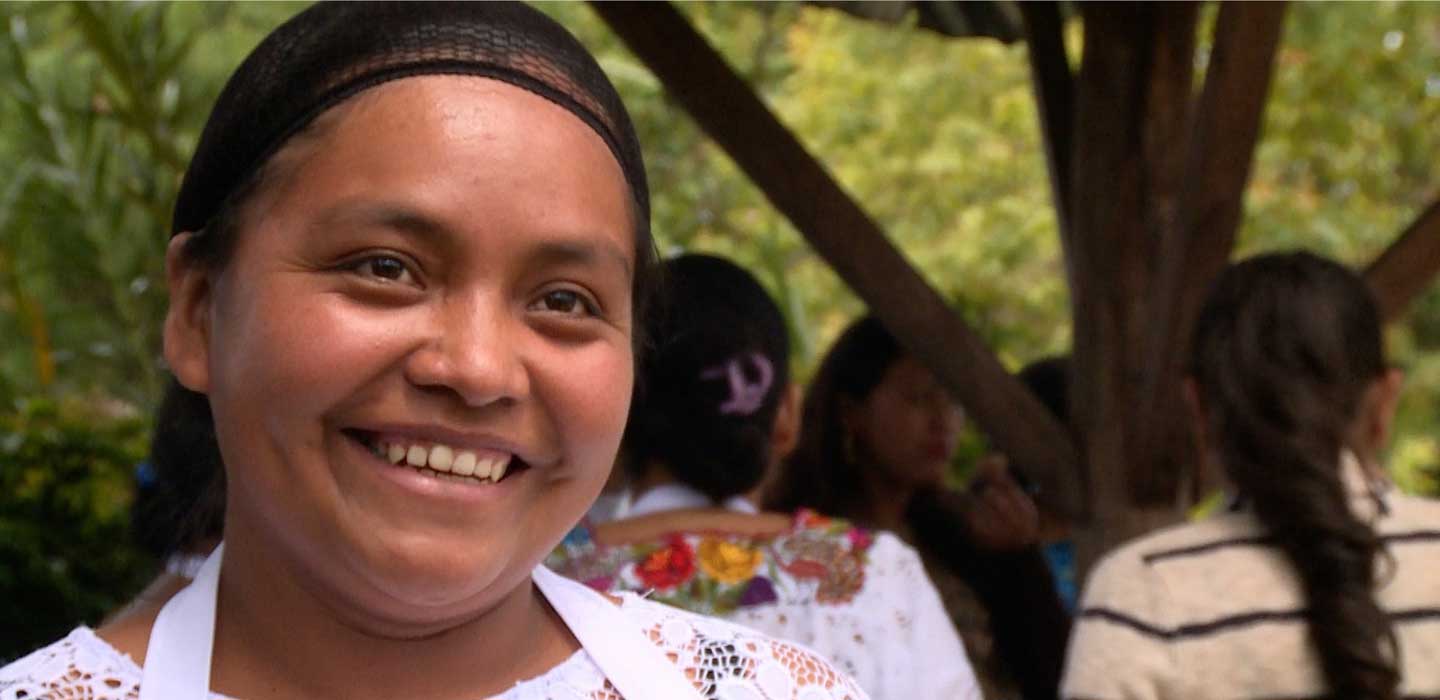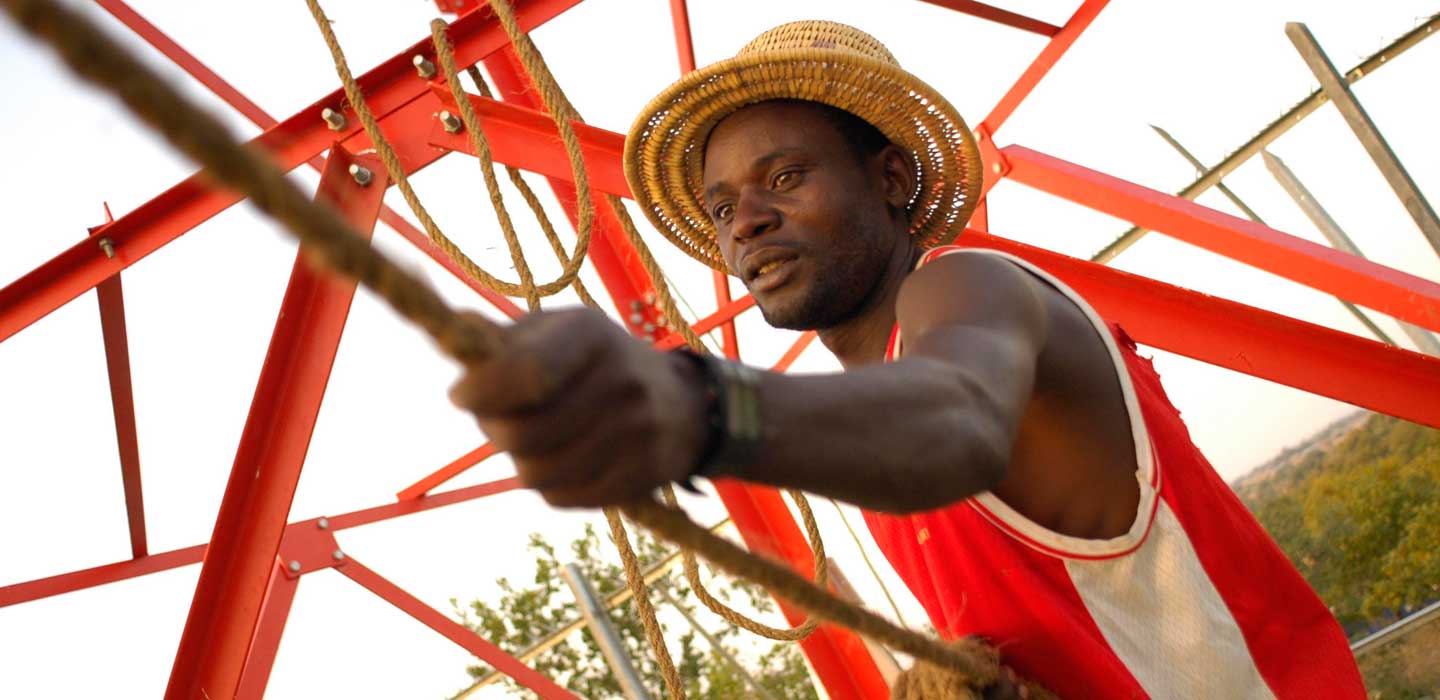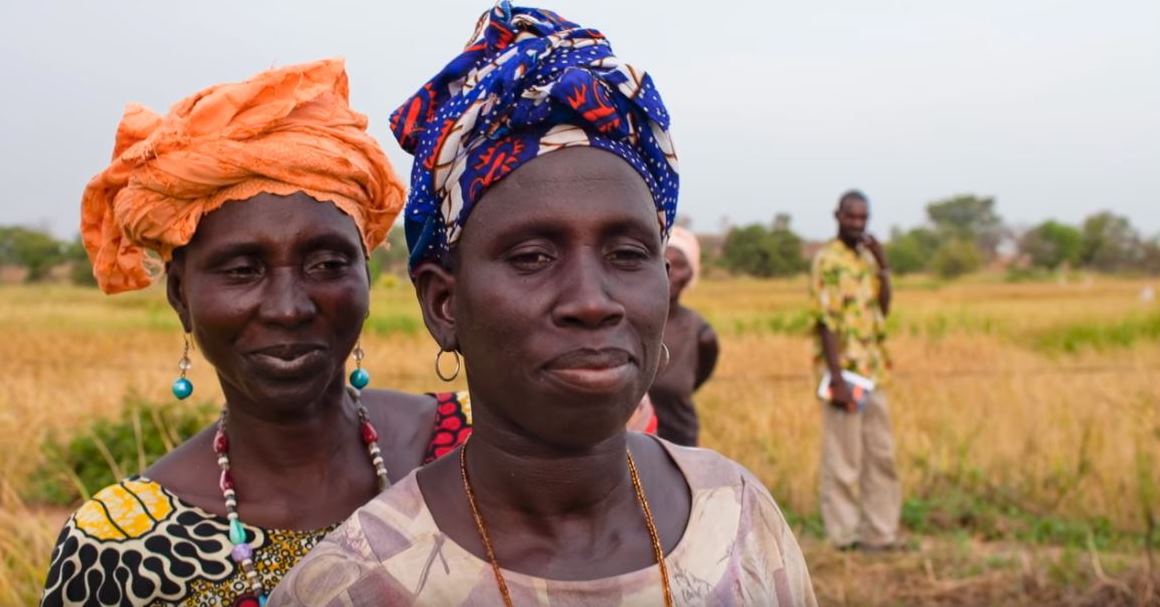Latest
Latest

Latest
Manual Submenu Topics
Search Results Filters
Search Results
See how water and peace go hand in hand
Peace and water are inextricably intertwined. That’s why sustainable rural development can help reduce conflict in communities – and why water is often the crucial element that can make the difference.
Prosperity or the planet? Luckily, they're not mutually exclusive
All too often, value chain development harms the planet by emitting carbon and degrading environments. That’s why to build truly prosperous rural areas, we must make value chains not just strong, but sustainable.
The wonderful power of wetlands
Wetlands are closely linked with our wellbeing – they protect against erosion, improve water quality, and host a vast range of species. Let’s visit some of these precious ecosystems and meet the rural people protecting them.
With the right resources, rural women can change the world
When rural women access finance, the entire world flourishes. Find out how financially empowered women are leading the fight against climate change, achieving sustainable development and ensuring food security for their communities and the planet.
Innovation matters, especially for small-scale farmers
IFAD applies the latest tools and technologies to support small-scale farmers. Here are six examples of innovations proven to work for rural communities all over the world.
Rural people in Sudan call time on water wars
As the climate crisis takes hold and water scarcity sparks conflict, rural people in Sudan are finding ways toward peace and equitable resource management.
Georgia and Kyrgyzstan: sustained efforts toward collective community pasture management
Pastoral communities in Georgia and Kyrgyzstan work hand in hand with IFAD to make land use more equitable, productive and sustainable.
A tale of two towns in Tajikistan
In Tajikistan two neighbouring towns face different fates as one suffers the aftermath of drought and displacement and the other is saved by irrigation.
You are what you eat: Indigenous youths breathe new life into ancient traditions
Young members of indigenous communities are working to reverse centuries of dispossession and preserve their way of life, including their food heritage.
How farmers around the world are protecting nature’s delicate balance – and reaping the rewards
Healthy ecosystems are diverse ecosystems. And at IFAD, we believe that small-scale farmers are amongst the greatest stewards and beneficiaries of biodiversity.
As COP15 tackles desertification, here are three ways IFAD is helping farmers in sub-Saharan Africa build their resilience to climate change
Sub-Saharan Africa’s drylands – that is, the areas where more water is lost through evaporation than gained through rainfall – are facing widespread degradation. There are many factors causing this, but one of the most prominent is the use of agricultural practices that aren’t adapted to the land, such as overgrazing and intensive agriculture.
The thin green line that’s holding back the Sahara desert
The Great Green Wall was envisioned as a line of trees stretching across Africa to protect against desertification. Today, it is a mosaic of farms, forests, and wilderness, where sustainable agriculture is the norm and rural-dwellers thrive.
These numbers show that restoring drylands and preventing desertification is good for the planet – and good for us
From California to the Sahel, from the steppes of Central Asia to the Andes, drylands are some of the most productive ecosystems in the world. But they’re also some of the most fragile.
Communities use GIS maps to conserve forests and adapt to climate change
Making the right decisions about managing natural resources isn’t always easy. That’s especially true for watersheds, where the local ecosystem depends on the health of multiple waterways. Now, GIS technology is helping communities in rural Nepal monitor and preserve the forests fed by local watersheds.
In Moldova, shelter belt forests build rural livelihoods and protect against climate change impacts
Forests are an excellent buffer against the effects of climate change. They’re also home to a variety of native plant and animal species that can foster resilient, sustainable local economies.
Why rural women need land rights: A conversation with Steven Jonckheere
This International Women’s Day, we sat down with Steven Jonckheere, IFAD’s Senior Technical Specialist on Gender and Social Inclusion, for a conversation on why women’s land rights matter – and what IFAD is doing about it.
These numbers prove that rural women are crucial for a better future. But they're not getting what they need to succeed
Despite being largely responsible for the food on our farms and on our tables, women don’t have access to the same resources as men. Without access to land, finance, training, inputs and equipment, women can’t produce effectively, achieve financial stability or food security, or grow their businesses.
In Turkey, strawberry farms bring opportunities for rural youth
Youth who grew up in the Taurus Mountains of Turkey have traditionally moved to the big cities to pursue their careers. But recently, thanks to an IFAD-supported project, the region’s farmers have begun growing strawberries. Highland strawberries are proving quite popular, driving the growth of a new regional value chain – and bringing the region’s youth back to the countryside to take part.
A green new hope for degraded soils
Over half the world’s arable land is already degraded, and this number is growing at a rate of 23 hectares per minute. But with the support of an IFAD-funded project – along with an unlikely ally – farmers in Bolivia’s Pando region are restoring the land in record time.
Fixing our food systems means getting the fundamentals right
The term “food systems” encompasses a huge variety of activities and issues. To make sure we’re all starting from the same place, let’s focus on the fundamentals: the land, and how to treat it well.
Promoting sustainable agrifood systems to combat climate change
It’s clear by now that no real progress on climate change mitigation will be achieved without the active participation of today’s top greenhouse gas emitters. In addition to transitioning their energy sectors away from carbon, actions such as making their agrifood systems more sustainable and promoting the use of natural carbon sinks could produce dramatic results in record time.
An IFAD–Indonesia partnership advances the policy agenda on sustainable peatland management
Peatlands store twice as much carbon as all the world’s forests and are home to everything from orchids to orangutans – but today, these lands are in peril. A partnership between IFAD and Indonesia’s Ministry of Environment and Forestry is working to set a national policy agenda that will protect peatland ecosystems.
Effective micro-organisms: The key to healthy soil and healthy diets in rural Lao
Agriculture is the main source of income and livelihood in rural Lao. But Lao crops are highly climate-sensitive, leaving farmers with little room for error when it comes to climate adaptation.
Four ways nature-based solutions benefit rural people and communities
“Nature-based solutions” (NbS) might sound like a buzzword, but these techniques are some of the most effective tools in our arsenal against the effects of climate change.
What do the IPCC report’s findings mean for rural dwellers? Your questions answered
The IPCC report released in summer 2021 leaves no more room for ambiguity: the climate is changing, and it’s because of human activity. Here, we answer some of your questions about the report, why it’s important, and what its findings mean for some of the world’s most vulnerable populations.
What are nature-based solutions? Your questions answered
We believe nature-based solutions (NbS) are the key to helping the most vulnerable people adapt to the effects of climate change. But just what are NbS, and why do we think they’re so great?
Small-scale producers are central to Africa’s forest restoration efforts
Small-scale farmers have an important role to play in restoring Africa’s forests. Two IFAD-supported projects in Eritrea and Kenya are helping these farmers engage in efforts that both restore local forests and have direct economic and social benefits for their communities.
Building a Great Green Wall: Four lessons learned from the World Bank assessment
Helping the people of the Sahel prosper requires a Great Green Wall stretching across Africa. IFAD is embarking on a series of projects to help build this “wall.” We recently sat down with the World Bank to learn from their successes and challenges across a decade of their own project implementations in this region.
Revitalizing the practice of shifting cultivation: A conversation with Dr Dhrupad Choudhury
Shifting cultivation is an indigenous food system practiced by millions of people across south and south-east Asia. A new resource book authored by Dr Dhrupad Choudhury, in collaboration with ICIMOD, is designed to guide policymakers and development professionals in sustainably transforming this practice.
Three ways to harvest water in Brazil’s sertão
For centuries, people living in Brazil’s semi-arid region have struggled with a lack of water. But over the last decades, thanks to support from IFAD and other development actors, these communities are squeezing a few more drops of water from Mother Nature.
Grass funds: Tradition meets ingenuity in Brazil’s sertão
Too many people assume Brazil’s fundo de pasto communities are relics of the past. Today, they’re at work uniting centuries-old traditions with contemporary food systems.
Efforts to restore tropical peatlands need fire-free plantations
Peatlands across south-east Asia have been cleared for agricultural purposes, leading to a sharp increase in fires. To reverse course, we need to transition to sustainable, fire-free peatland management practices.
Climate-smart agriculture supports food systems in rural Georgia
Through the use of climate-smart agriculture techniques, an IFAD-supported project is helping rural Georgian farmers holistically restore their local and regional ecosystems.
Why land tenure is crucial for sustainable food systems
With nearly half of the world’s population living in the rural areas of low- and middle-income countries, tenure security is fundamental for sustainable development.
In Kyrgyzstan, new technology preserves age-old pastures
Urmatbek Omurbekov remembers a time when grazing his livestock was a purely offline affair. Every spring, herders like him would bring their animals to the foothills of the majestic Tian Shah Mountains to let them fatten up for the next winter.
There is a growing climate emergency facing smallholders across Asia Pacific – what is IFAD doing about it?
According to UN reports, the Asia Pacific region is the most disaster-prone region in the world. Nearly 45 per cent of the world’s natural disasters occur in the region.
A year in review: Nurturing resilient rural communities in a time of change
2020 has been a tumultuous year. The COVID-19 pandemic has affected everyone across the world – and meanwhile, the other challenges faced by rural people across the globe haven’t gone away.
Five reasons IFAD is putting small-scale farmers at the forefront of food systems transformation
Our current food systems are not sustainable. Hunger has been on the rise for several years, with an estimated 811 million people worldwide going hungry in 2020 – and with the effects of the COVID-19 pandemic, up to 132 million more people are expected to join this number soon.
How Bhutan is showing the way in building crop biodiversity
For countries like Bhutan – nestled in the high Himalayas, historically isolated and topographically challenging – ensuring food security is vital.
World Soil Day: A tribute to our friends underground
Today is World Soil Day, so let’s dwell a little on this amazing world of earthworms, mites, fungi and microbes.
Supporting rural women’s land rights
In many parts of the world, full participation in society – including the ability to earn an income – is still dependent on owning (or having the rights to) land.
The 14th Five-Year Plan: An opportunity to advance China’s agricultural and rural transformation
A unique opportunity for China to advance its agricultural and rural transformation agenda.
Three reasons to invest in land tenure security
For rural people, especially low-income rural people, land and livelihood are one and the same.
Fighting food waste in China: Local efforts, global effects
Reflecting on the fundamental role that sustainable food production and consumption plays in promoting food security and sustainable use of terrestrial ecosystems.
A second chance for Sri Lankan tea
I grew up knowing that Sri Lankan tea was truly something special. People all across my native Egypt competed with each other to bring home those packages with the trademark “Ceylon Tea” stamped on the side.
The difference four years makes: A small Ecuadorean town goes from subsistence to prosperity with IFAD’s support
Four years ago, the residents of Chiquicha were just gathering the first fruits of an irrigation project.
Restoring nature and livelihoods: Experiences in Zambia
World Environment Day is a day set aside to raise awareness about environmental issues and encourage protective action. This year’s theme is “Time for Nature.”
Marie-Aude Even talks about agronomy
Marie-Aude Even, senior regional technical specialist in agronomy at IFAD, talks about crops development.
Putso Nyathi talks about agronomy
Putso Nyathi, senior regional technical specialist in agronomy at IFAD for the east and southern Africa region, talks about agronomy.
On the International Day for Biological Diversity, commitment to sustainable agriculture is more important than ever
This year’s theme for the International Day for Biological Diversity is “Our Solutions are in Nature.”
Recipes for Change: Dhindo – corn flour purée with nettle leaf curry and pickled tomatoes – Nepal
Climate change is contributing to increasing temperatures and droughts in Nepal, where corn and tomatoes are a staple food.
Call for proposals: Stepping up IFAD’s gender transformative agenda - Women’s land rights initiative
This call for proposals is to select a recipient or consortium of recipients to receive a three-year IFAD grant financing to implement the project: Stepping up IFAD’s gender transformative agenda - Women’s land rights (WLR) initiative, for a total amount of up to US$3 million.
How to improve impact evaluations of land tenure interventions in IFAD-supported projects
The inclusion of land tenure-related indicators in the SDGs has drawn increased attention to the topic.
Harold Liversage talks about land tenure
Harold Liversage, land tenure specialist at IFAD, talks about land and secured land rights for rural communities.
Community gardens in the Gambia: one solution, many benefits
Anyone who stops by Berefet notices how local people cherish the community garden in this small village in the western Gambia.
The value of indigenous tree species in Ethiopia
In the Chencha region of southern Ethiopia, erosion continues to be a pressing concern for the Gamo people, one of the main indigenous tribes of Ethiopia. The Gamo people live in the highland area and primarily practice mixed agriculture and weaving.
The Real Groundbreakers: Irma from Guatemala
Irma, a young Q’eqchi woman and farmer from Guatemala, is working to reforest over 400 hectares of land damaged by climate change, illegal logging and fires.
Innovative impact fund to create jobs for rural youth in developing countries
An impact fund with an innovative approach for attracting much needed capital to the rural areas of developing countries will be launched today at the annual meeting of Member States of the International Fund for Agricultural Development (IFAD).
The Gambia: IFAD invests in rural women
Almost half the world's agricultural workers are women, yet they own less land than men. Farmer Awa Jagne speaks about how access to land has changed her life.
